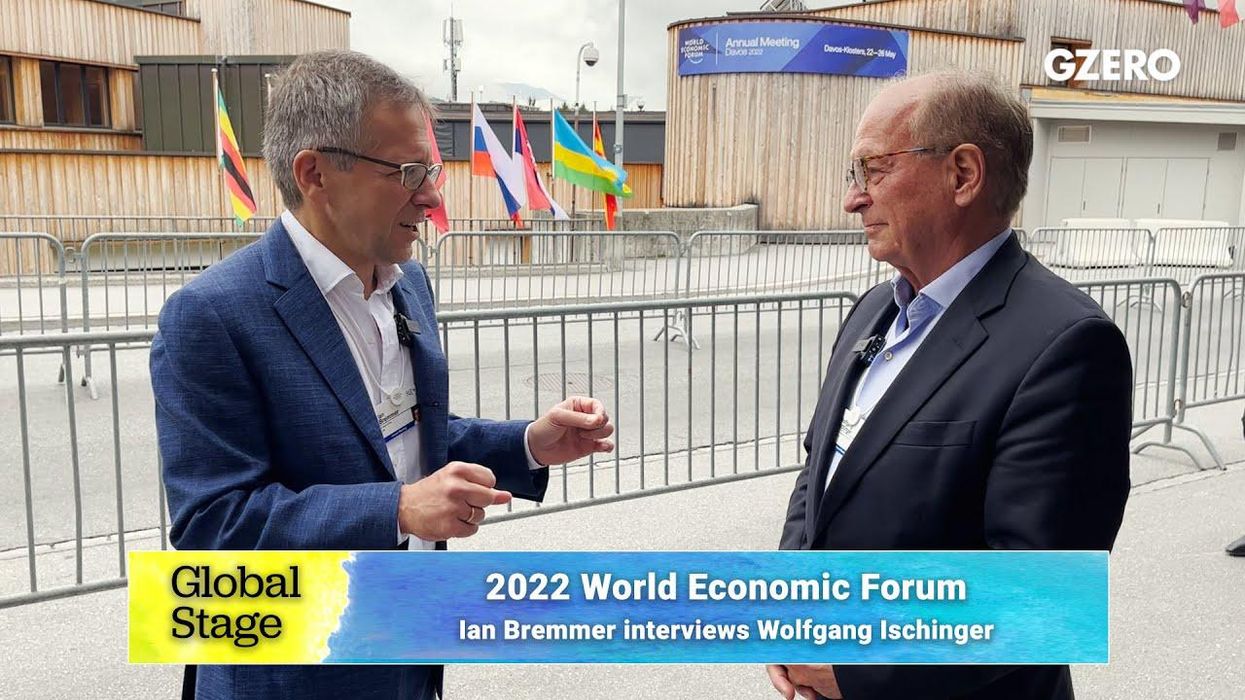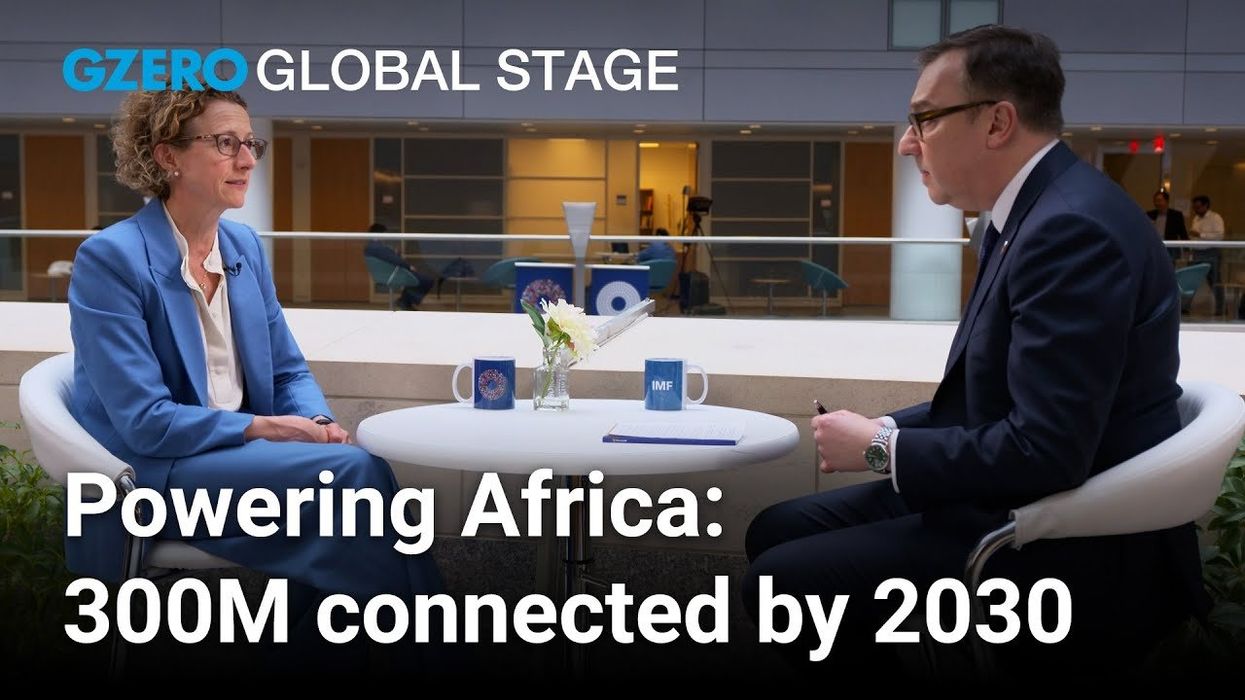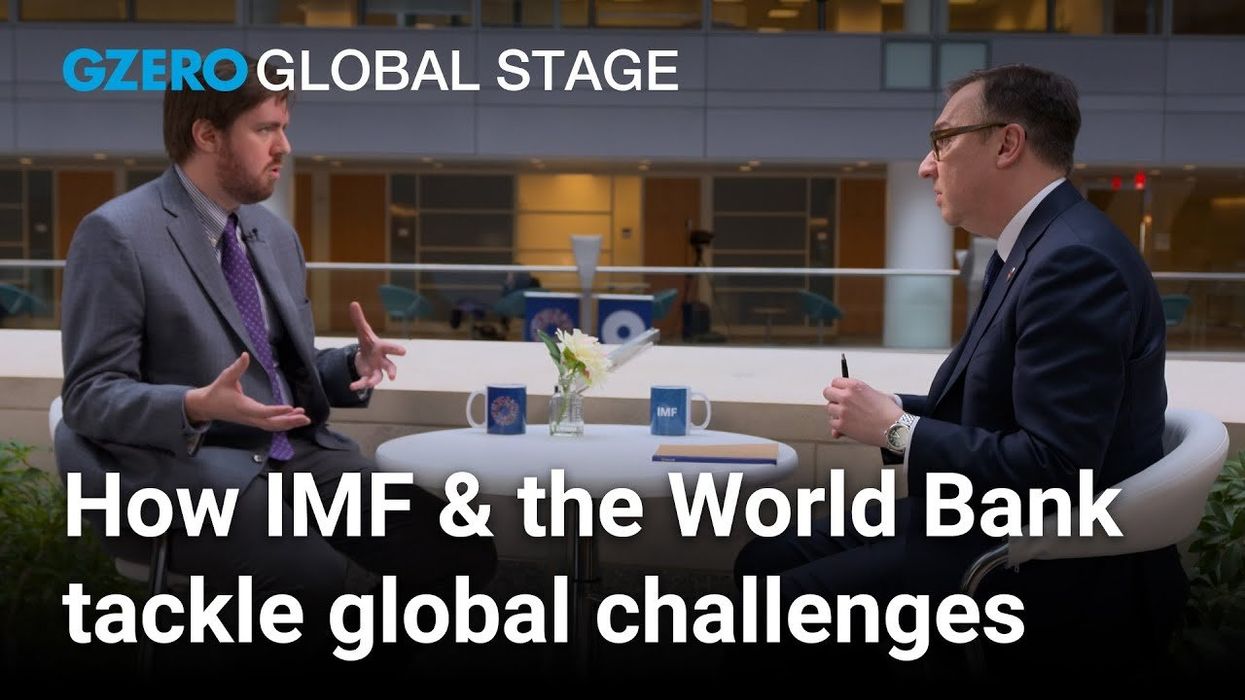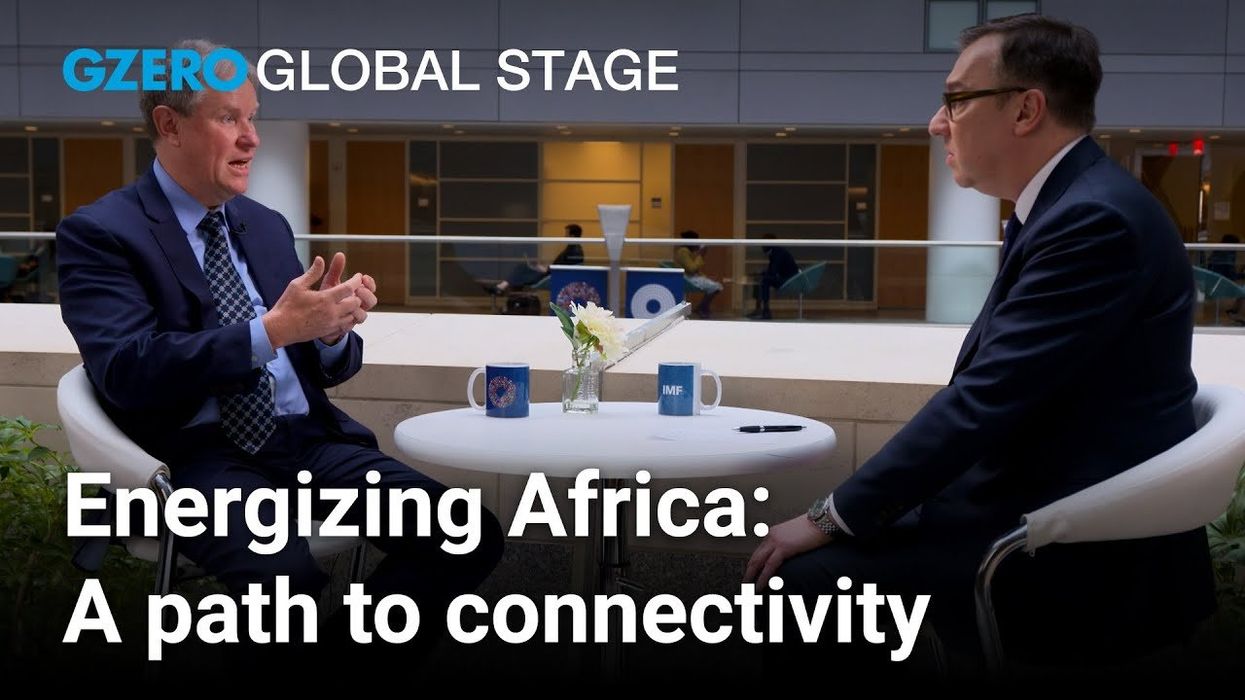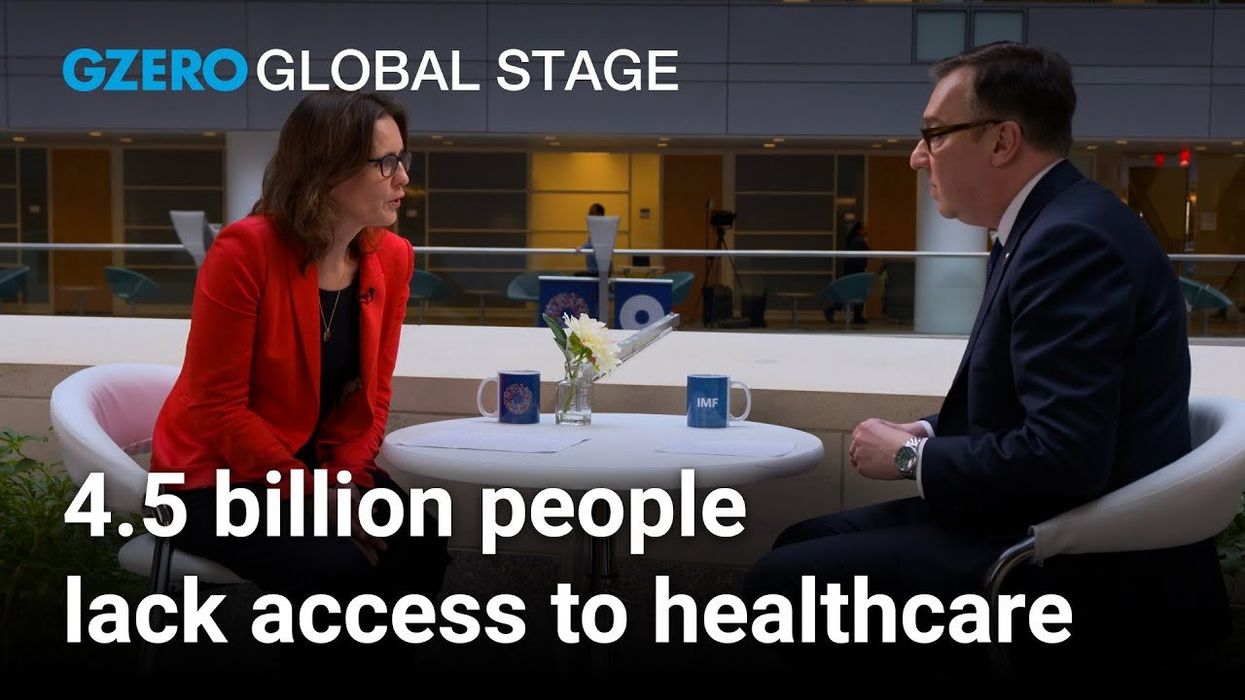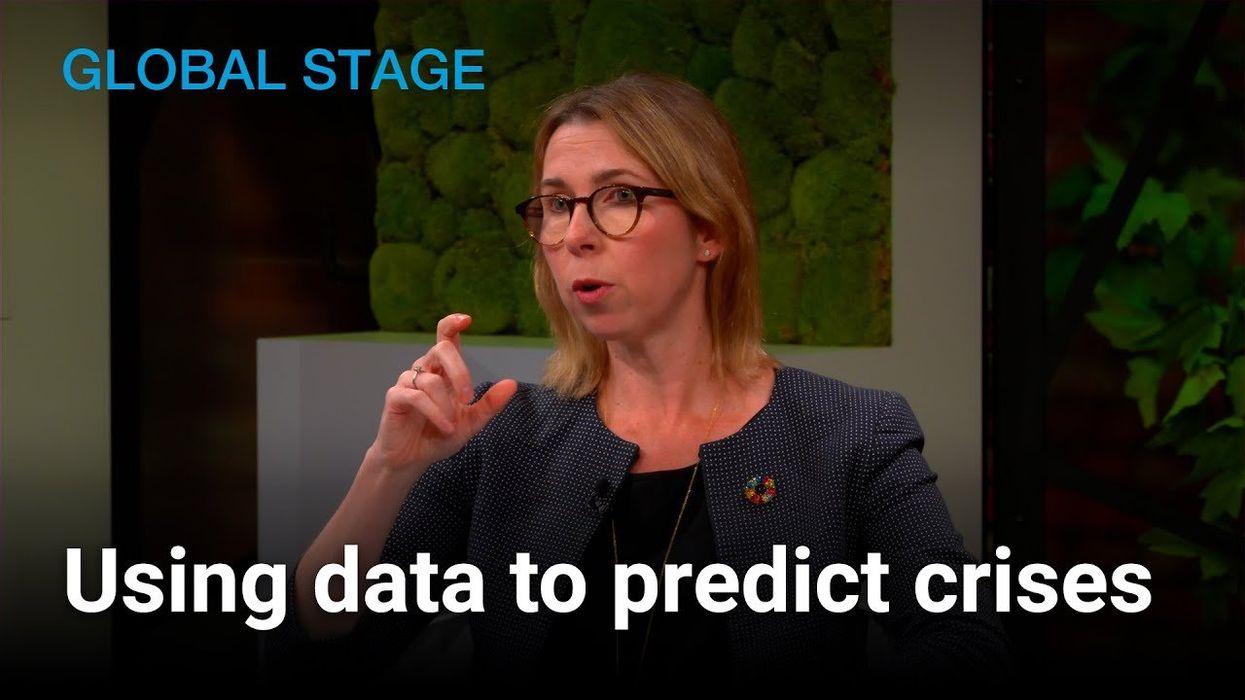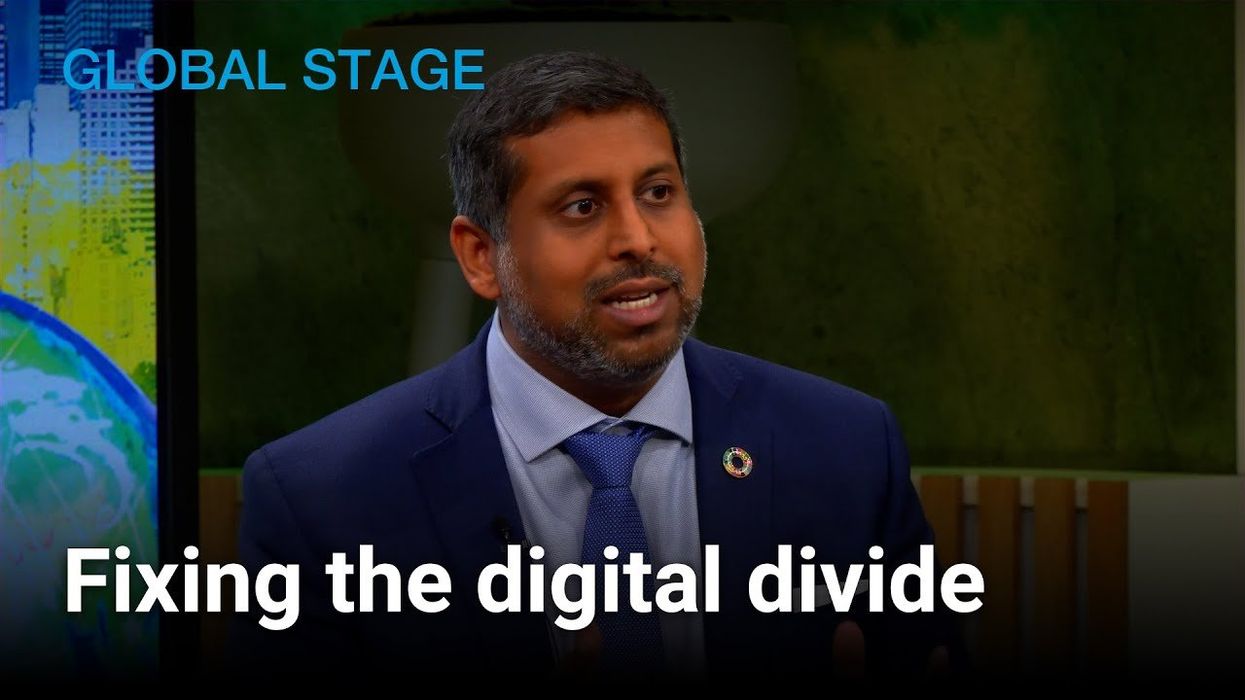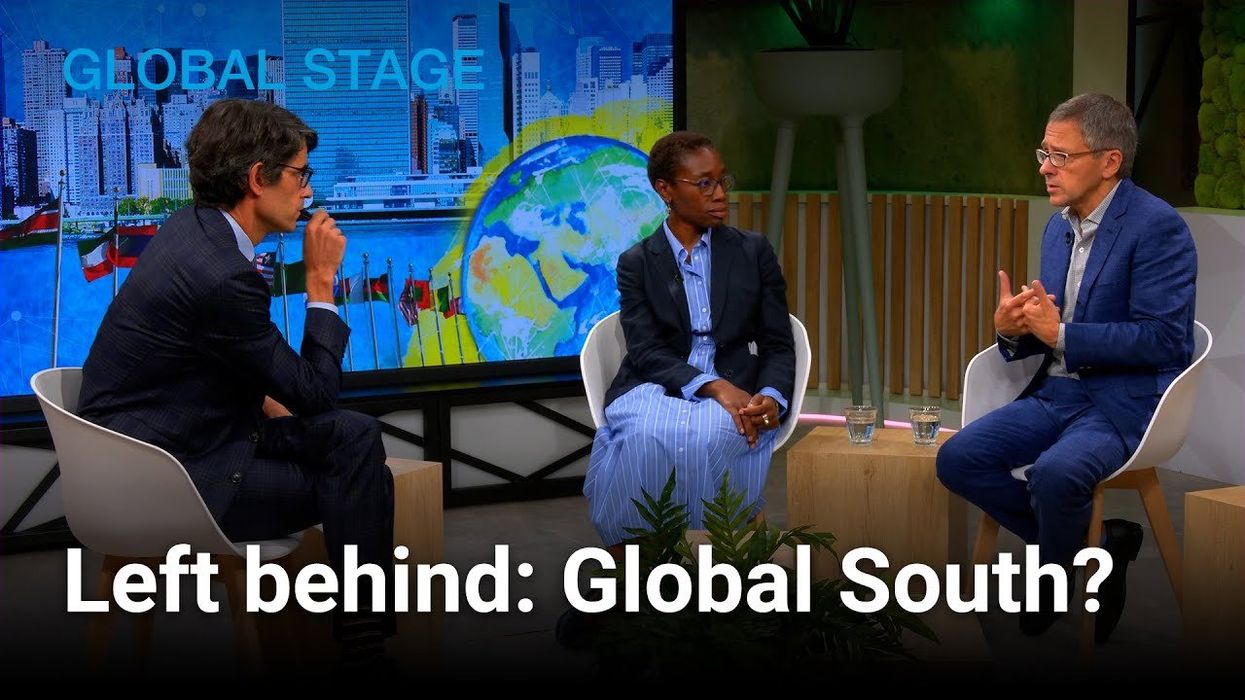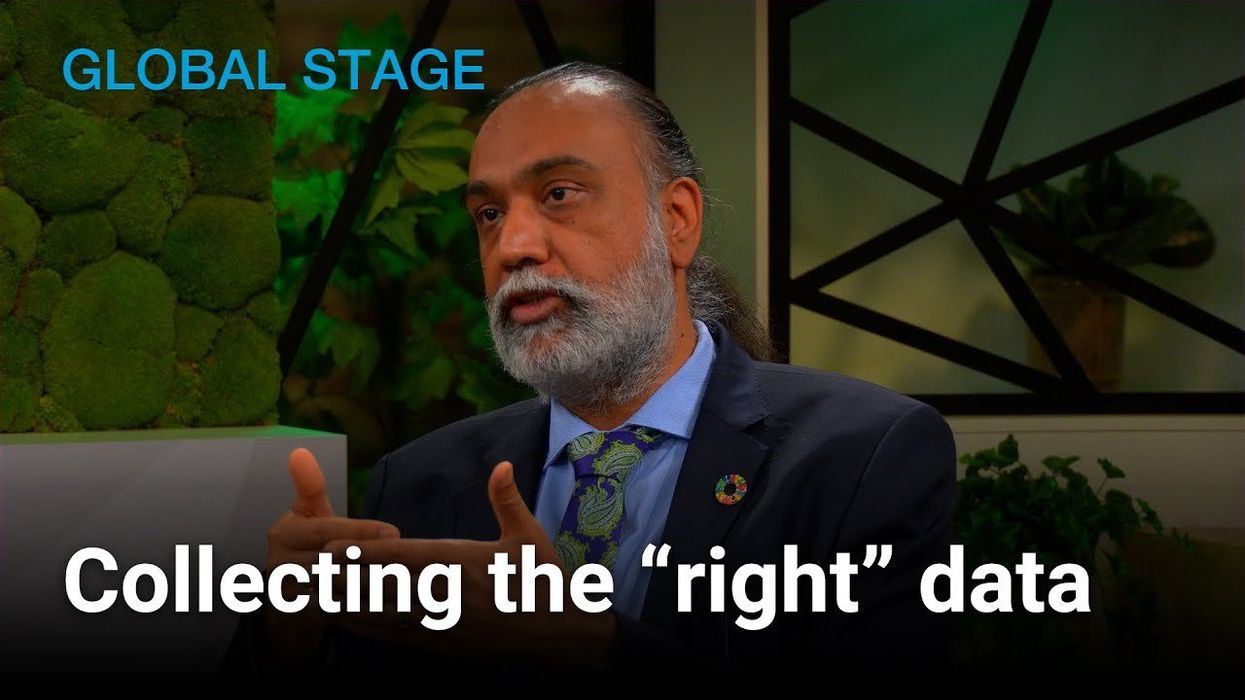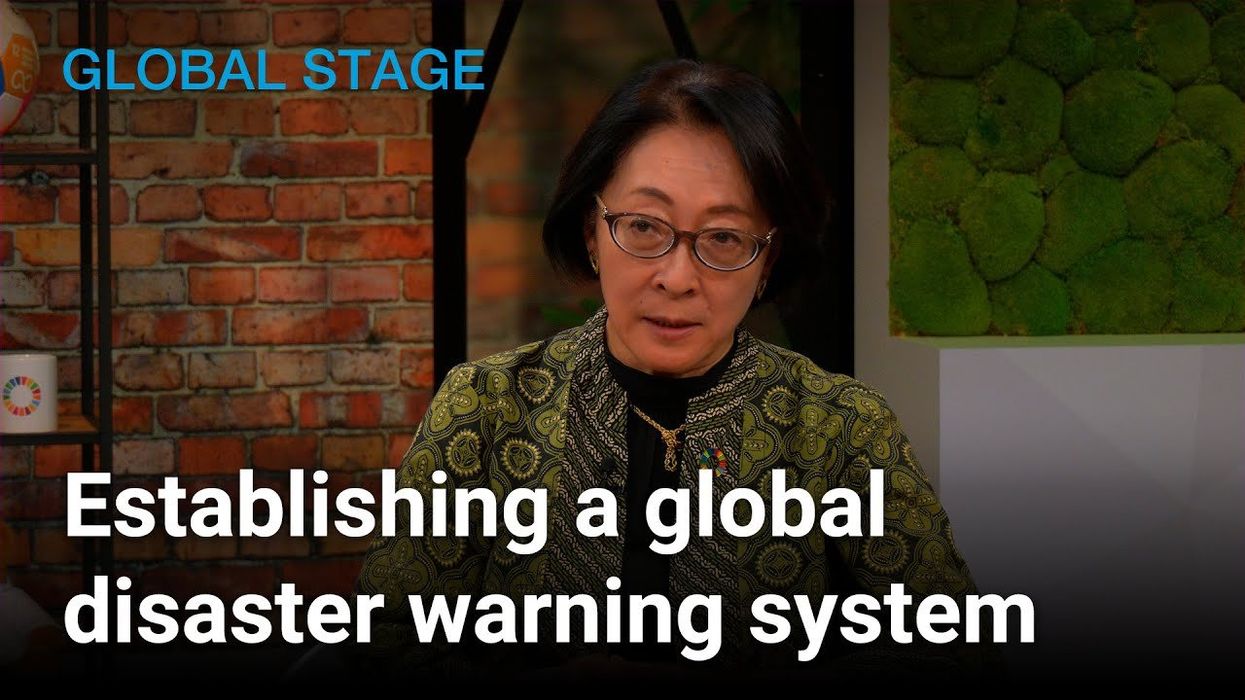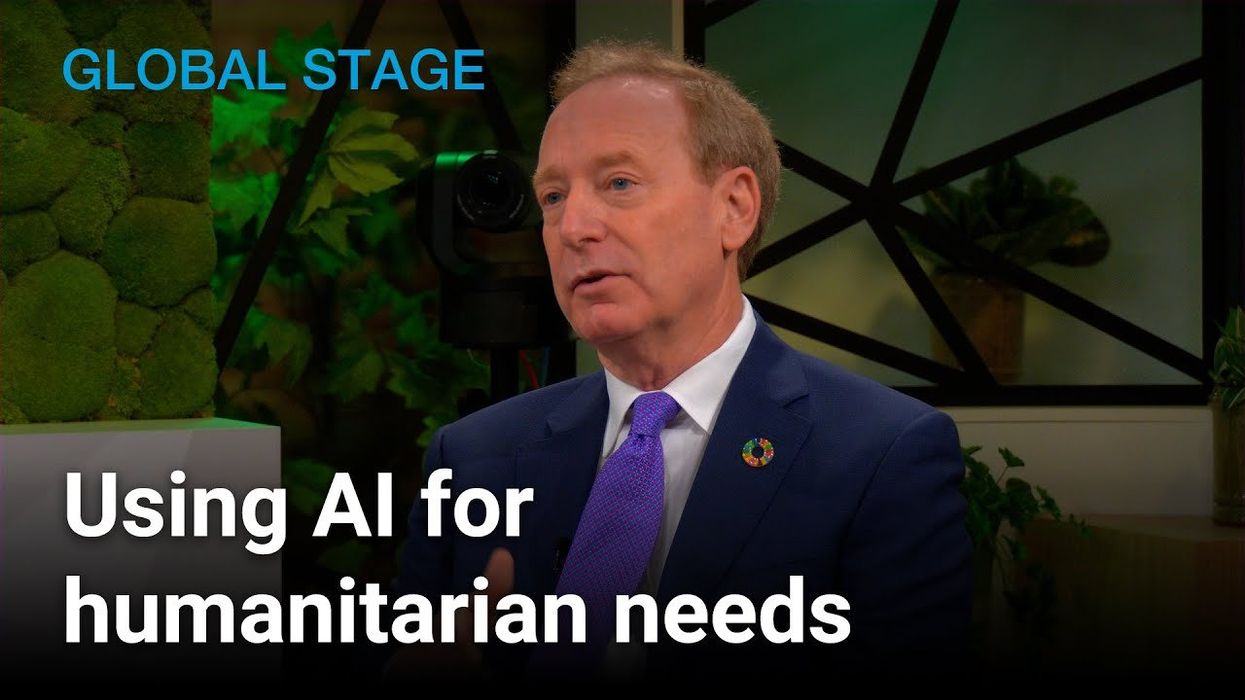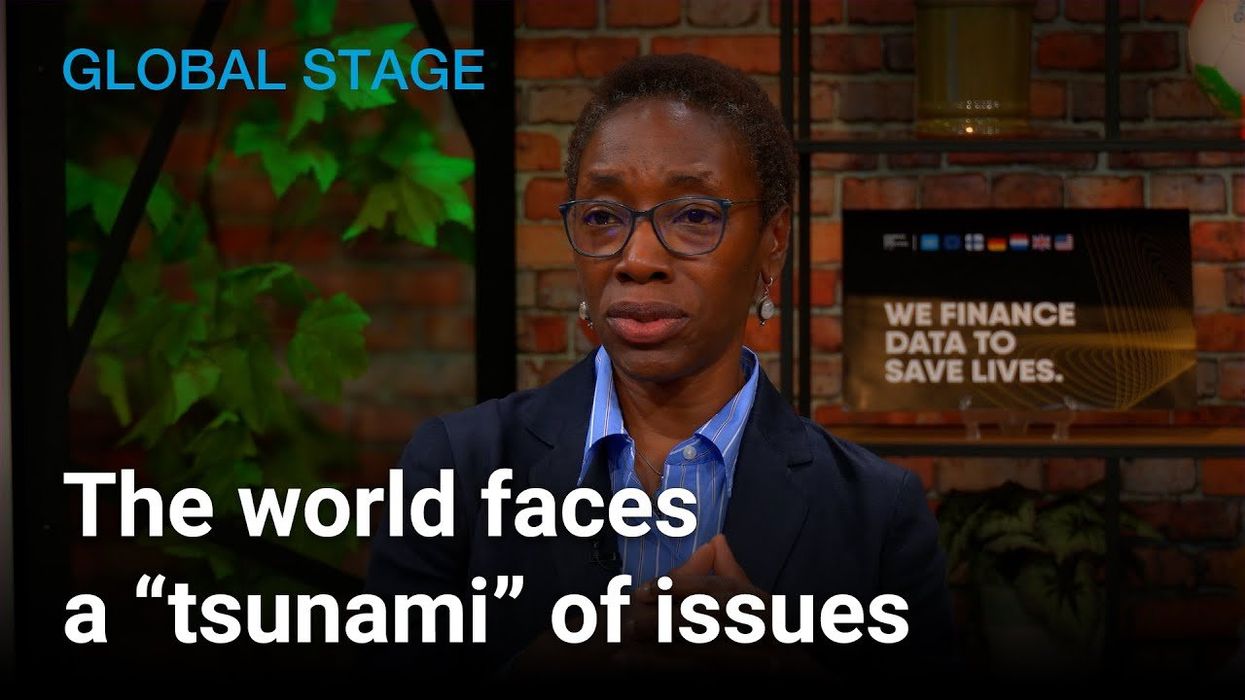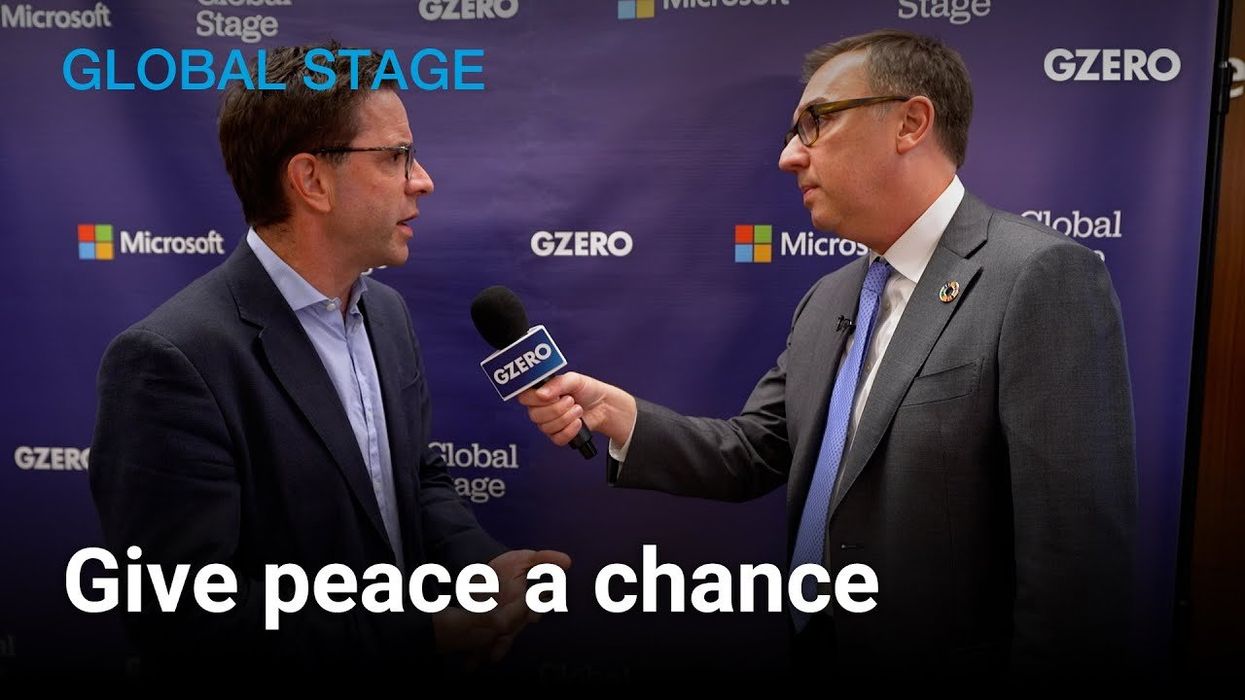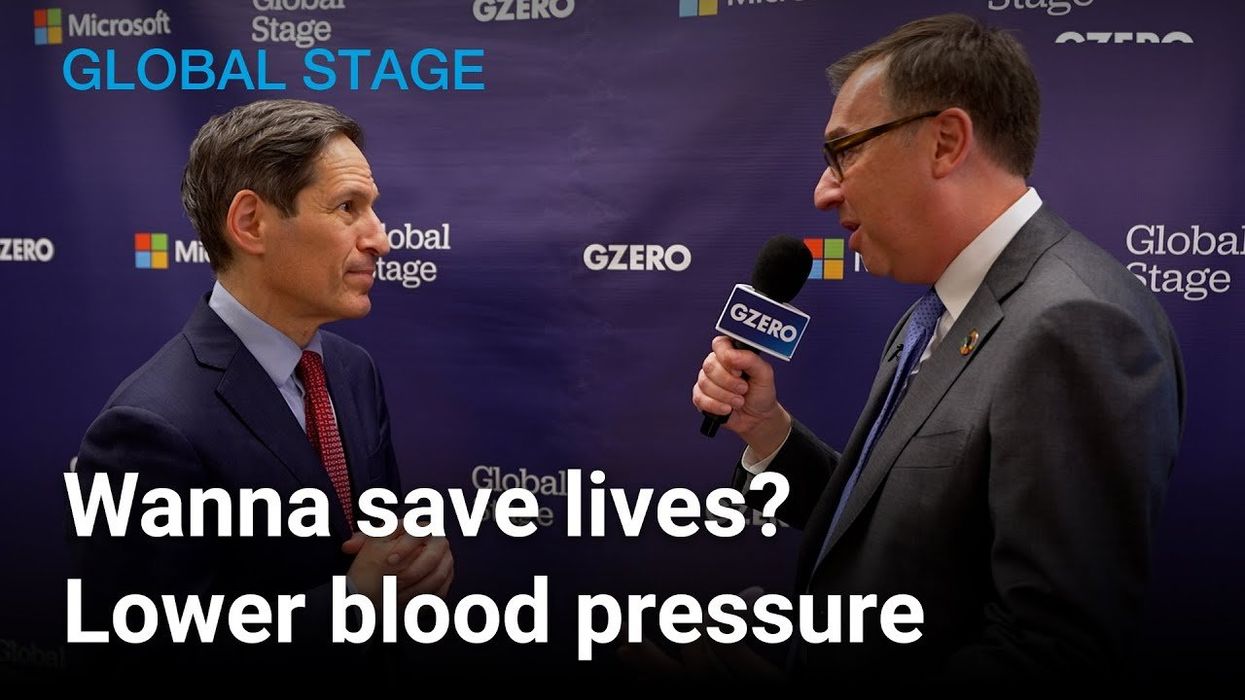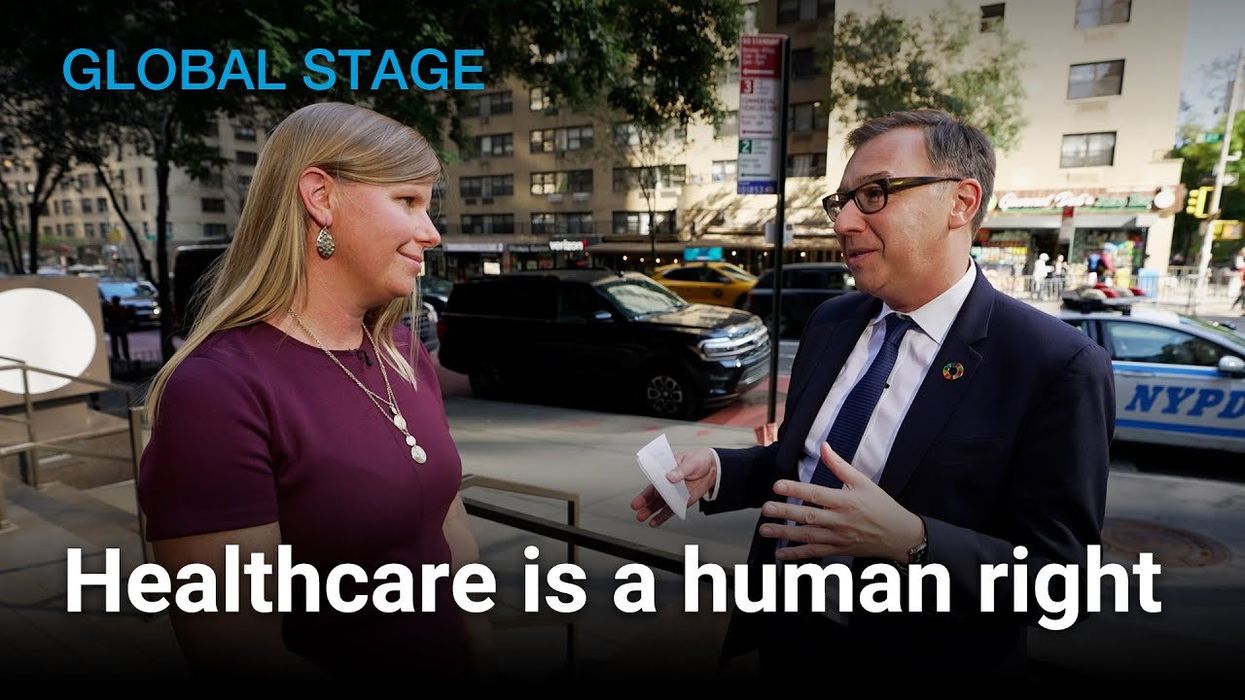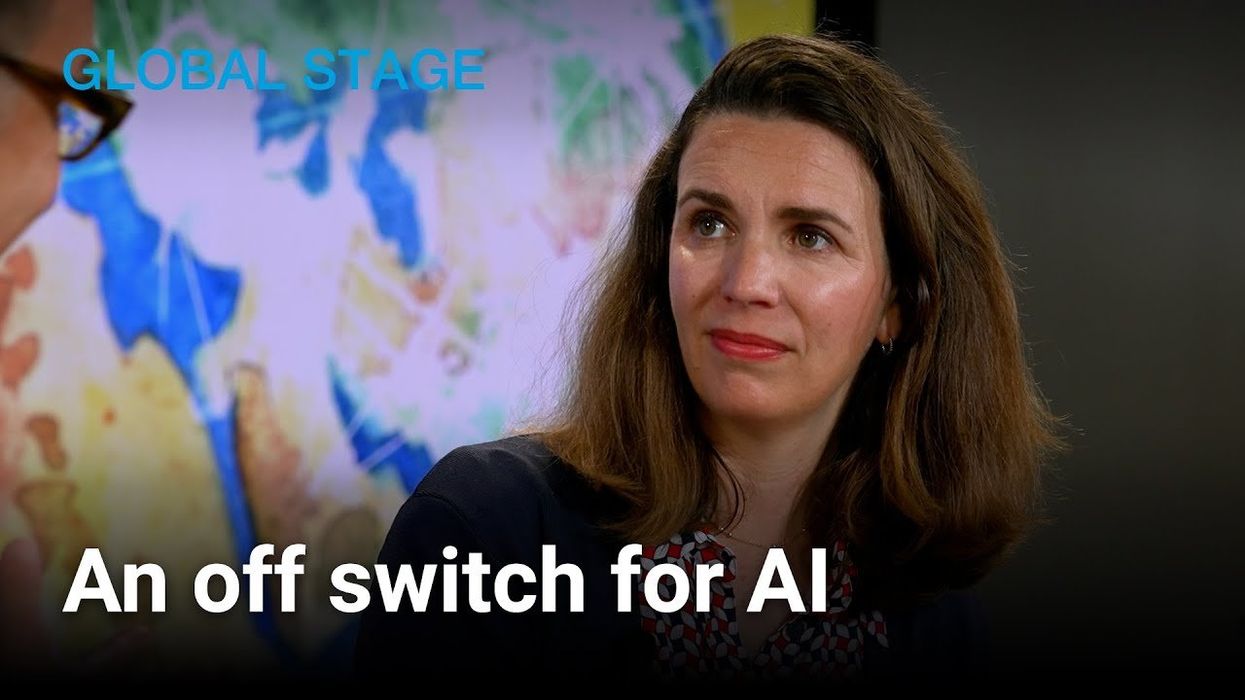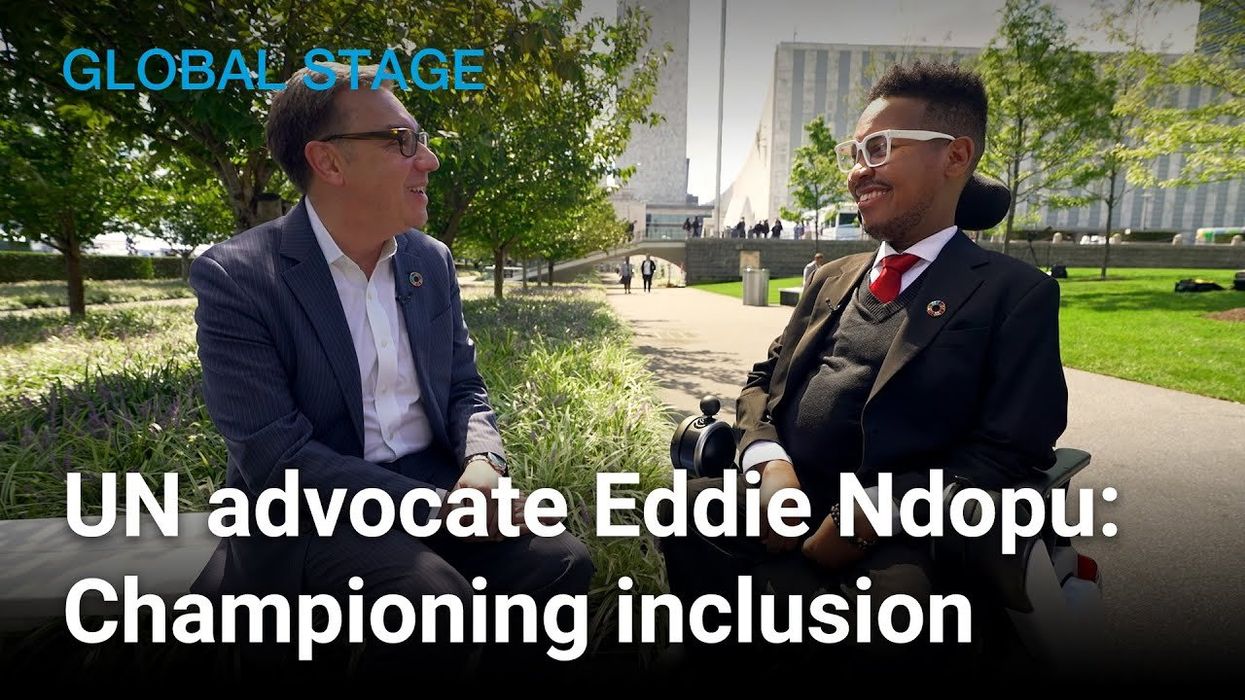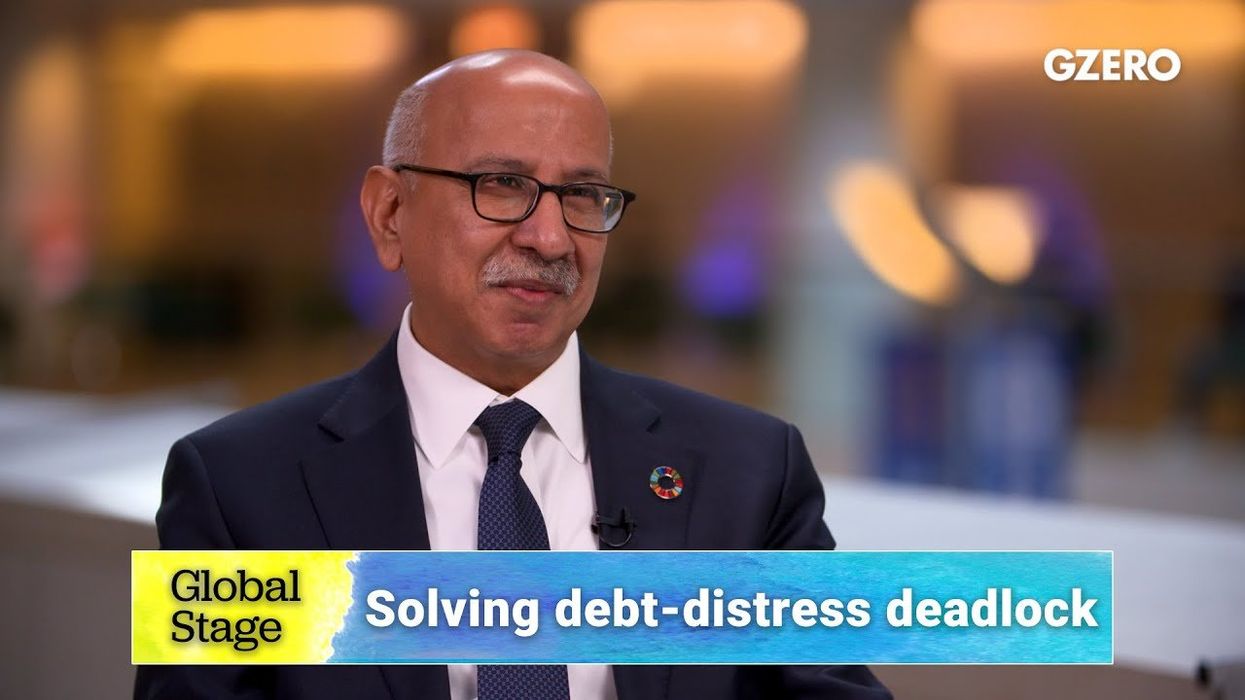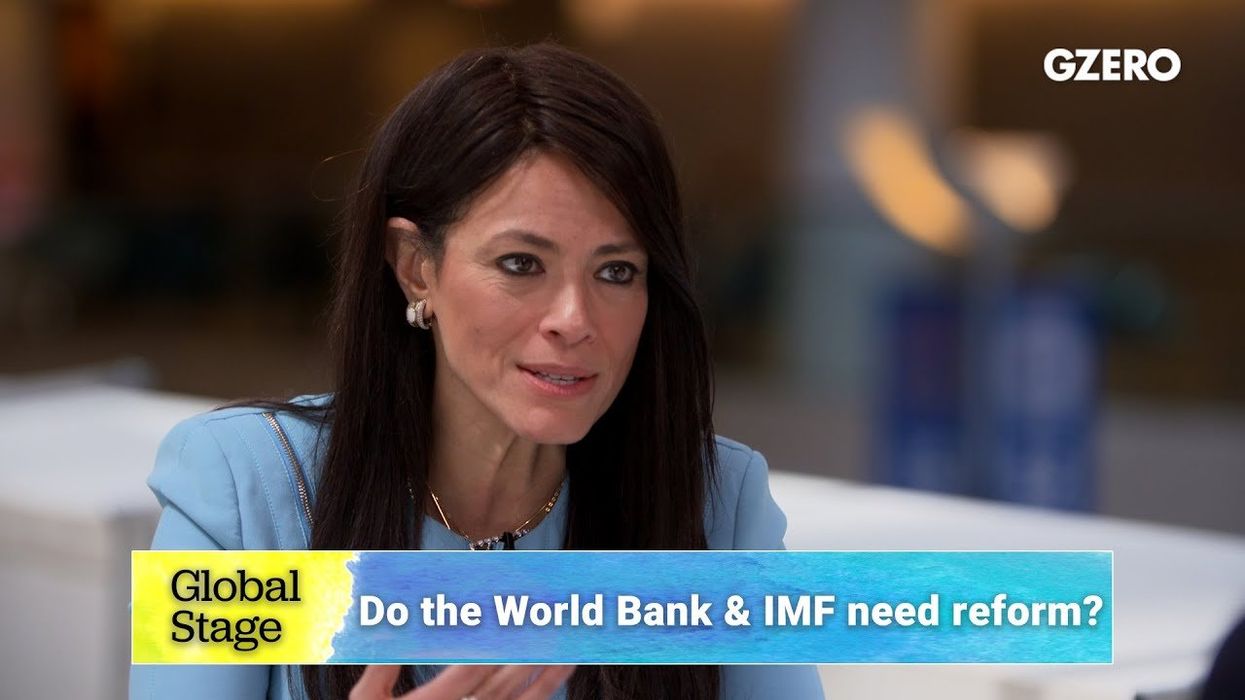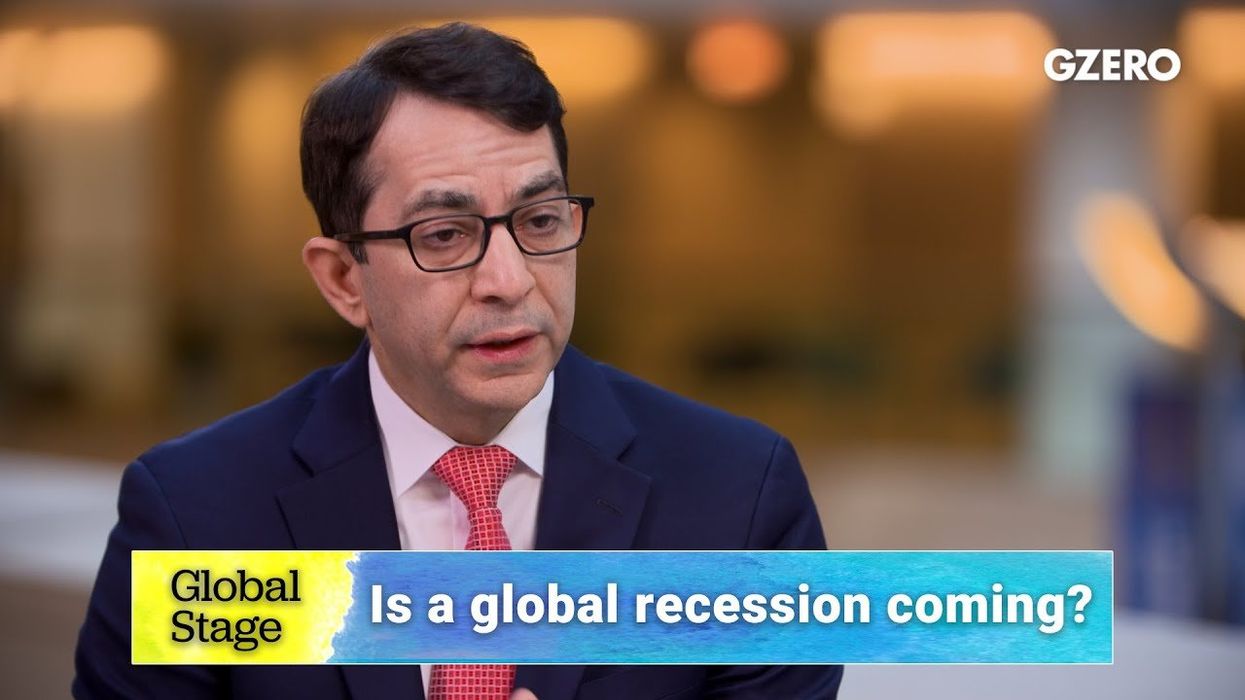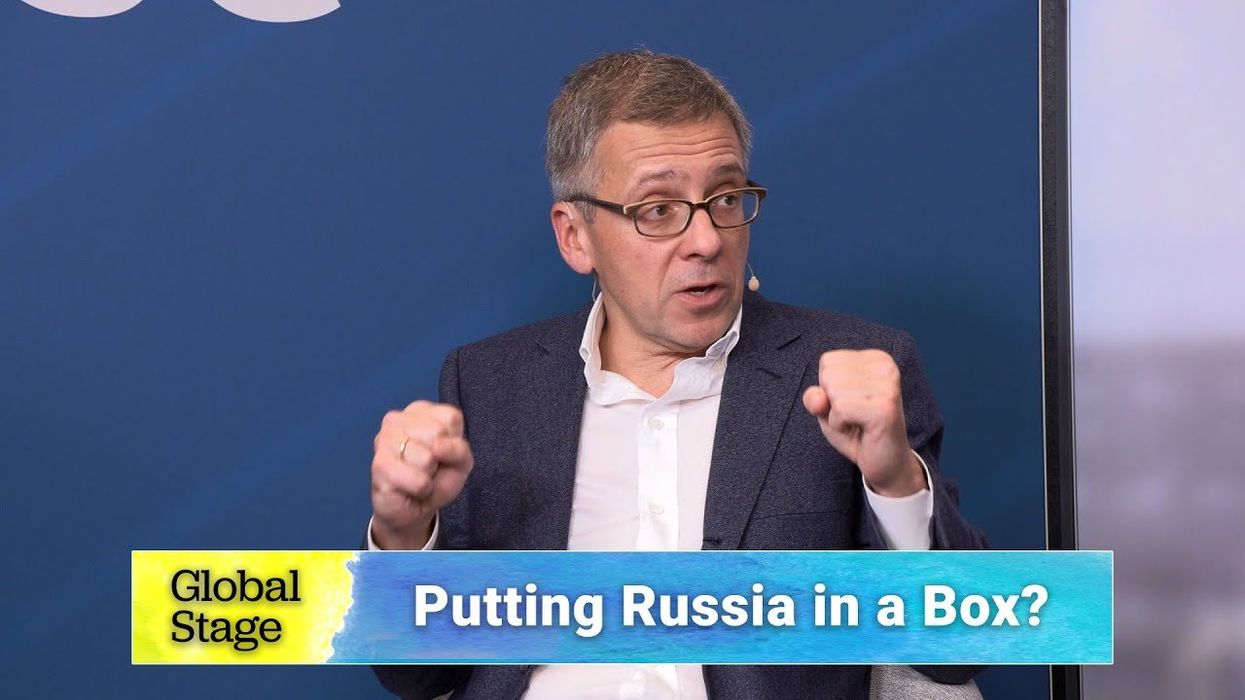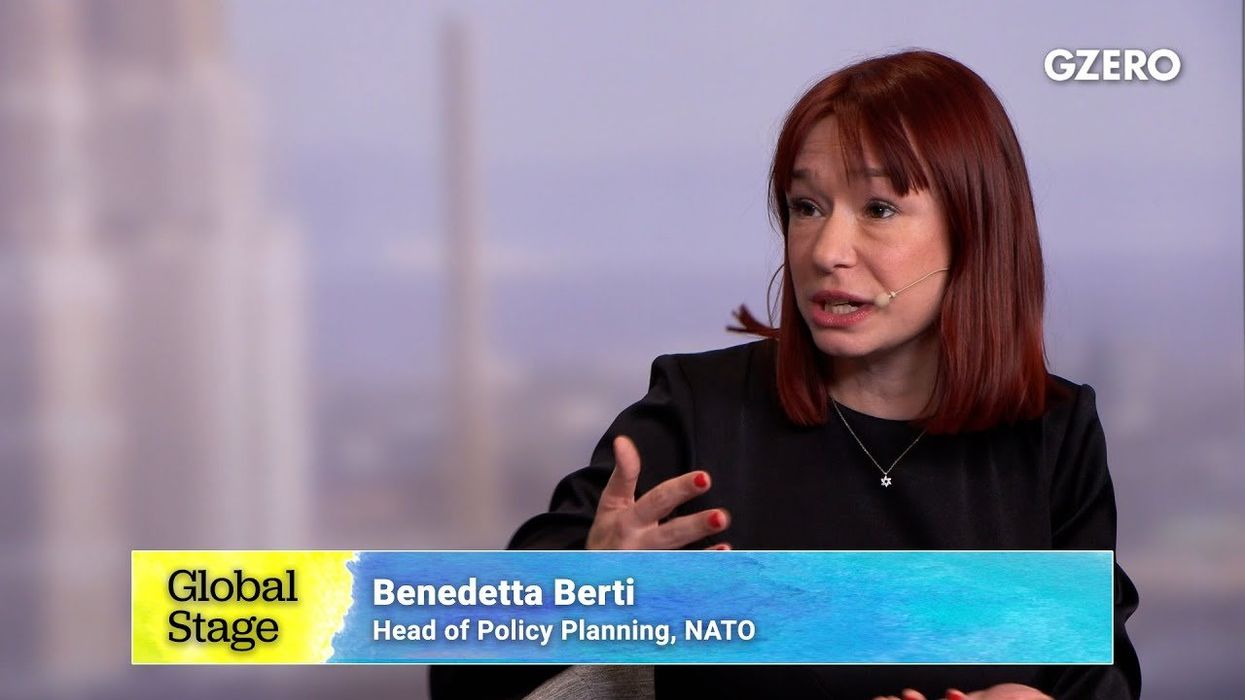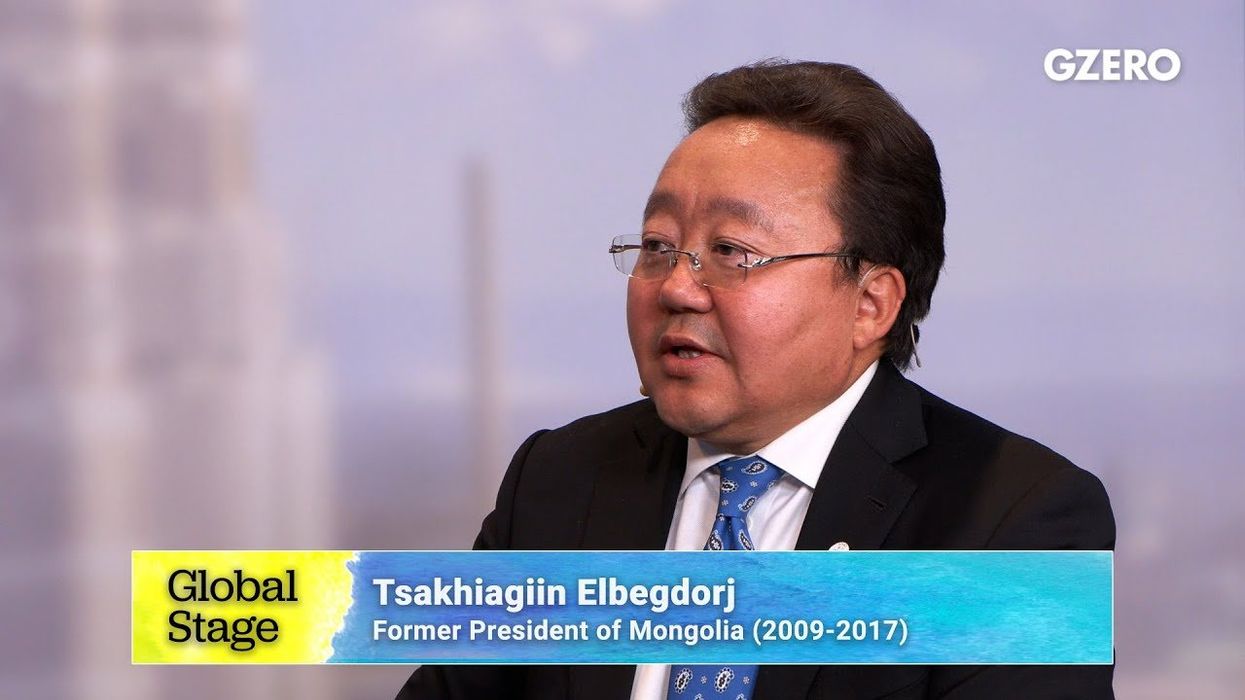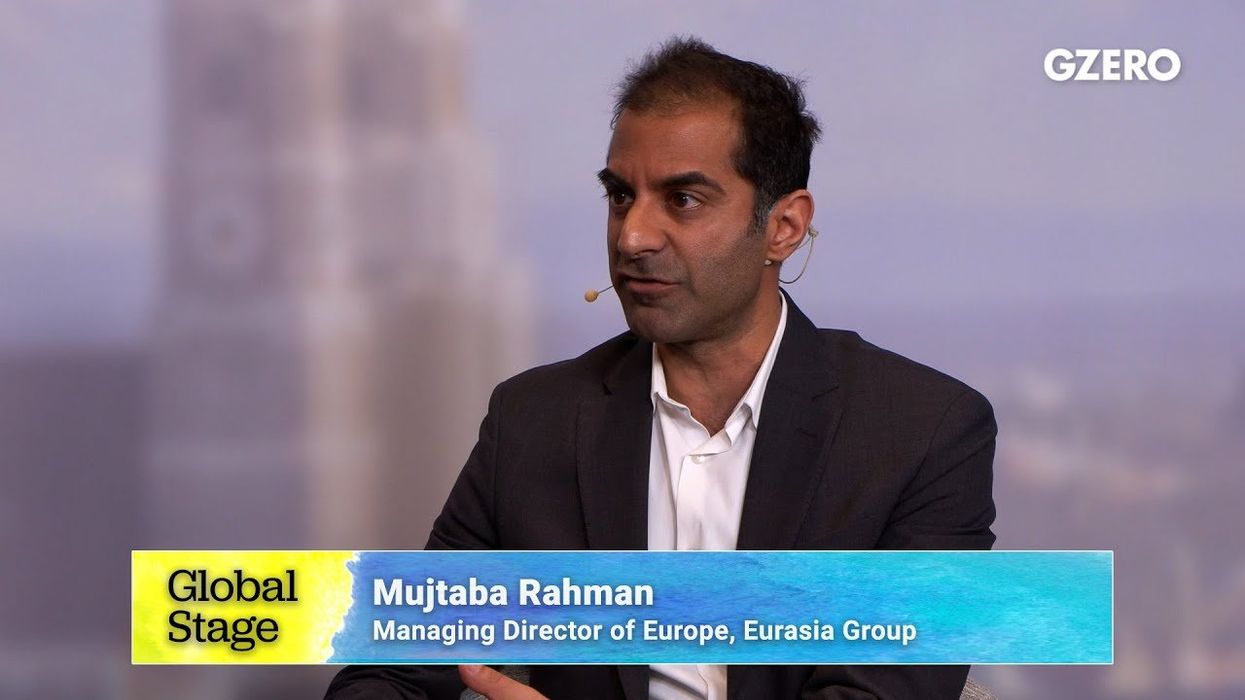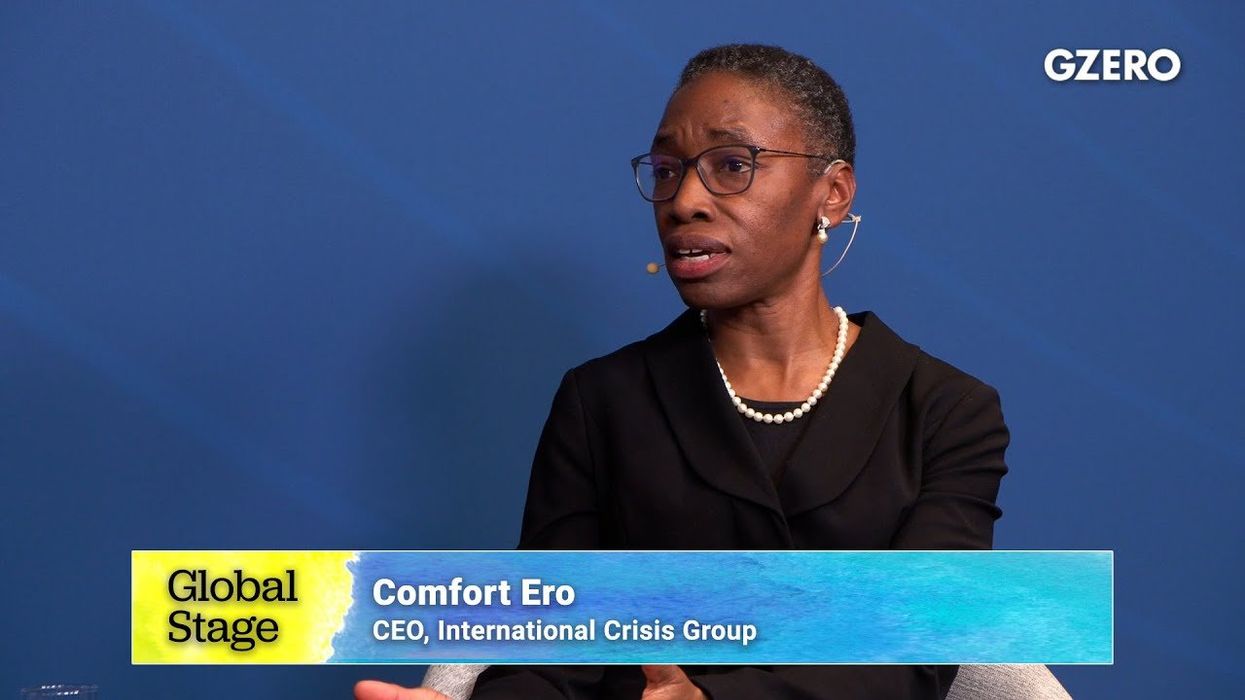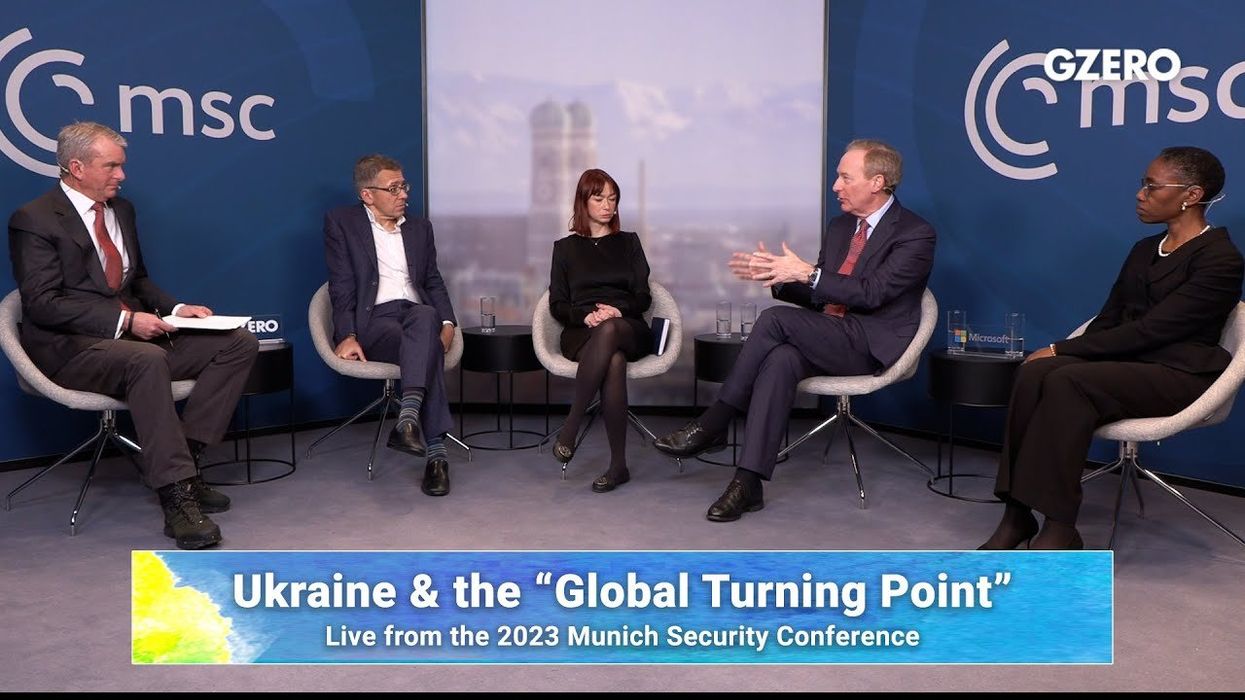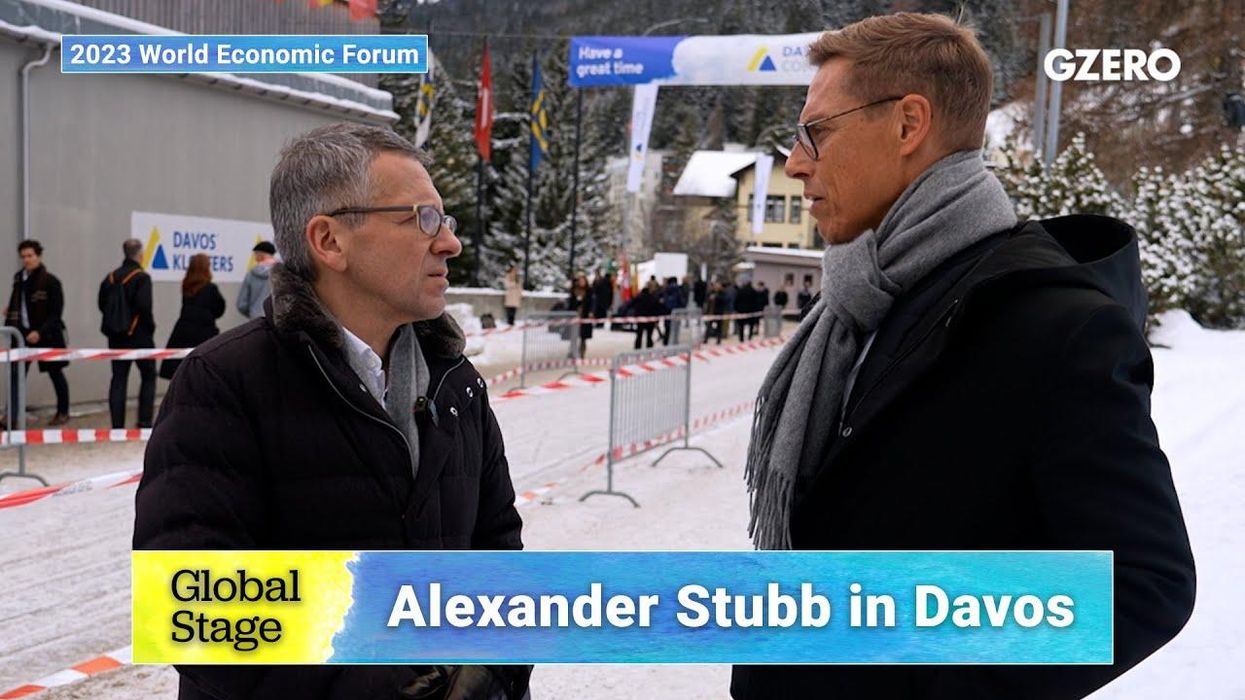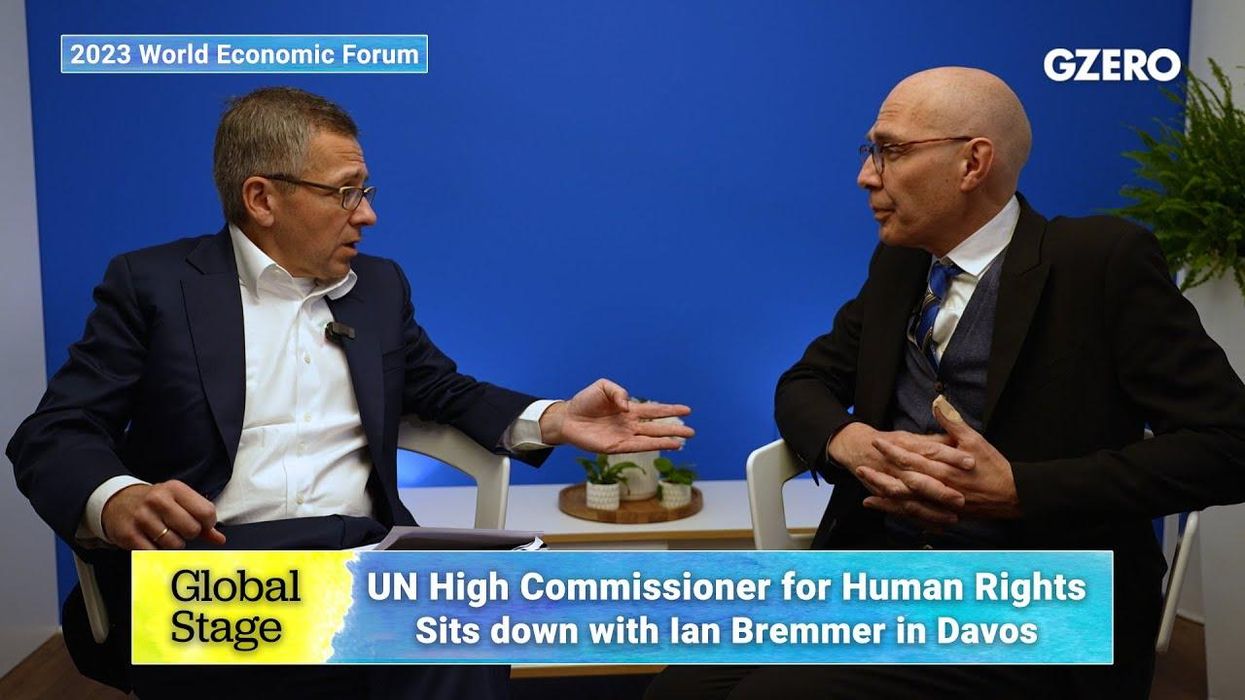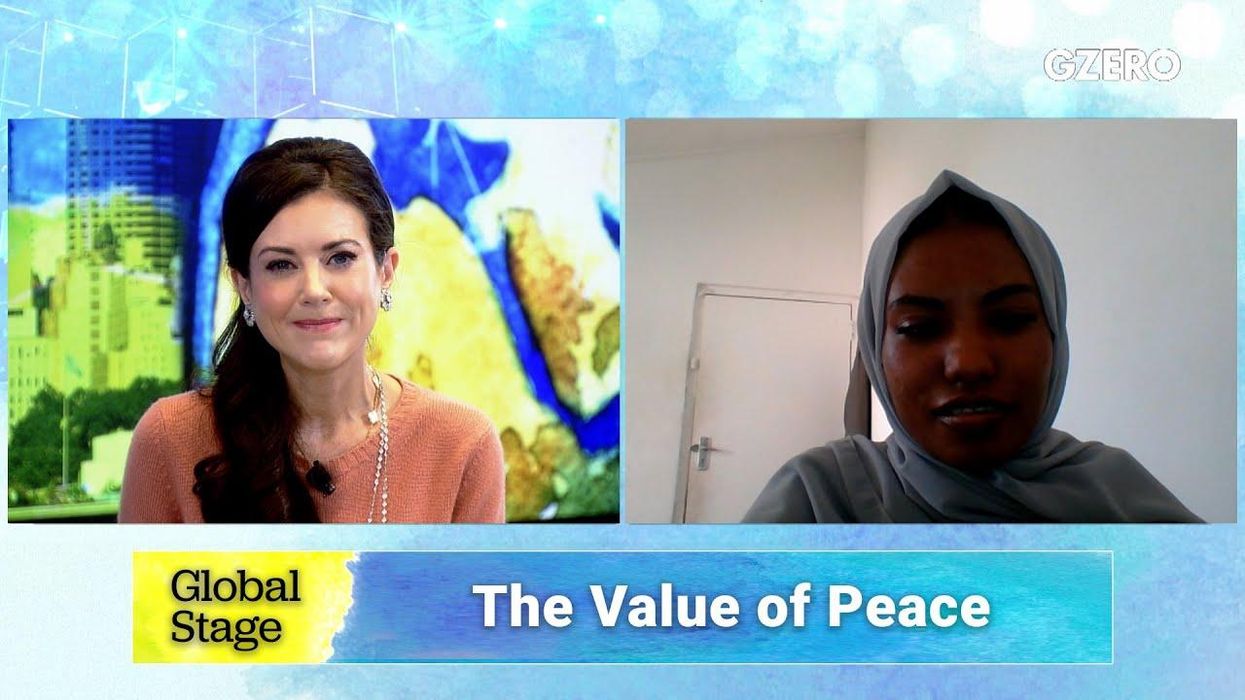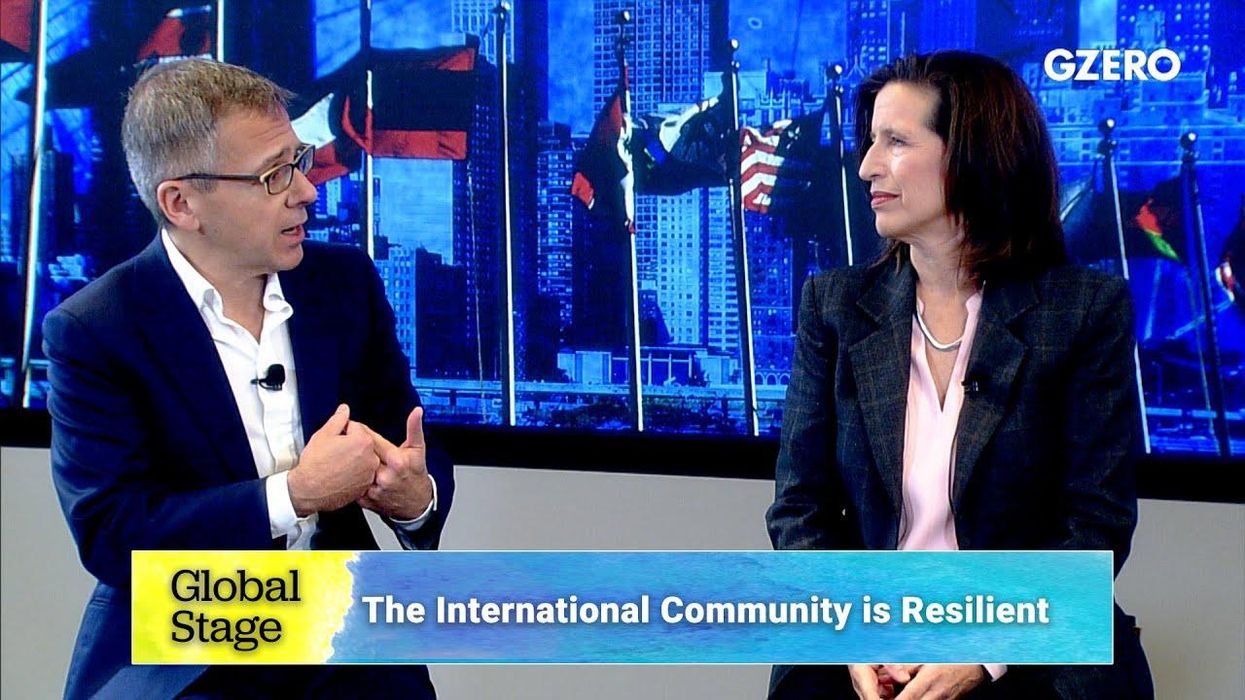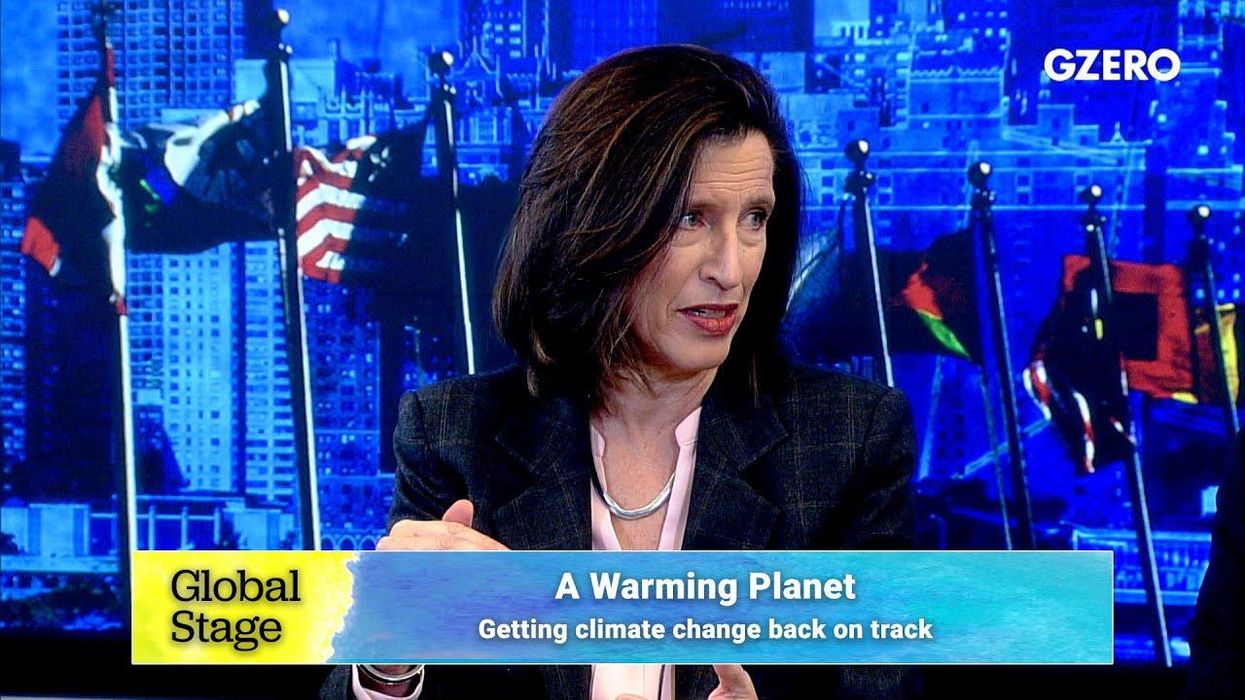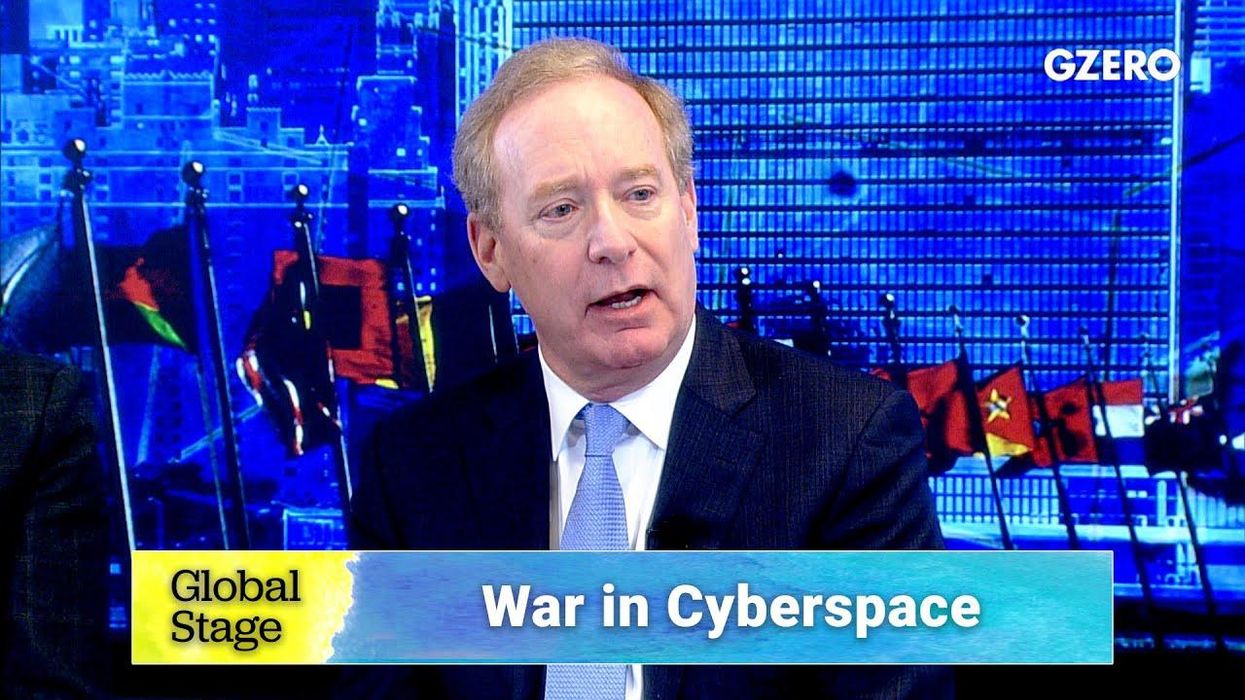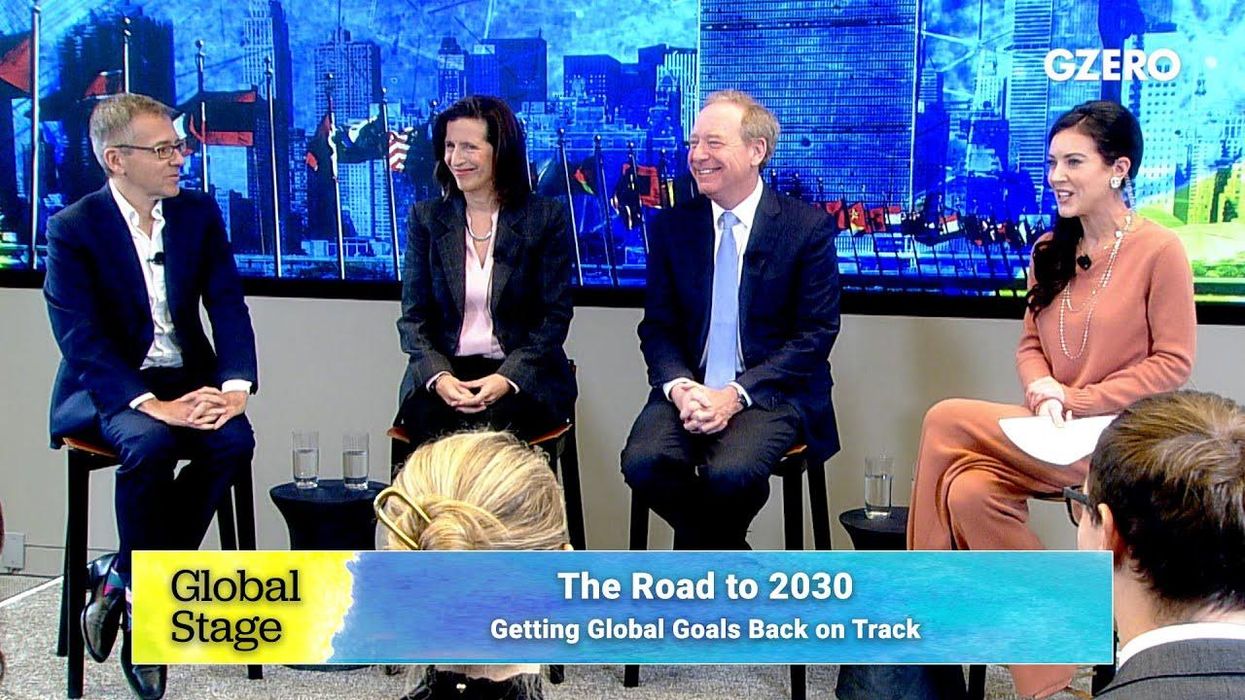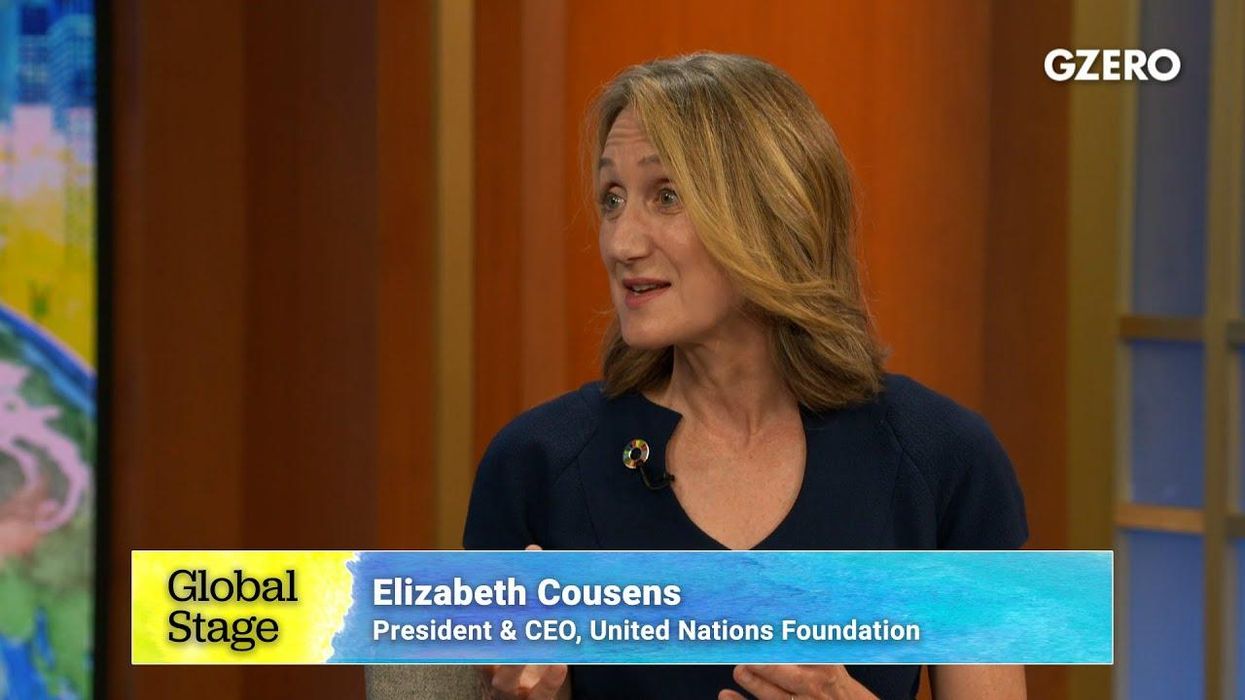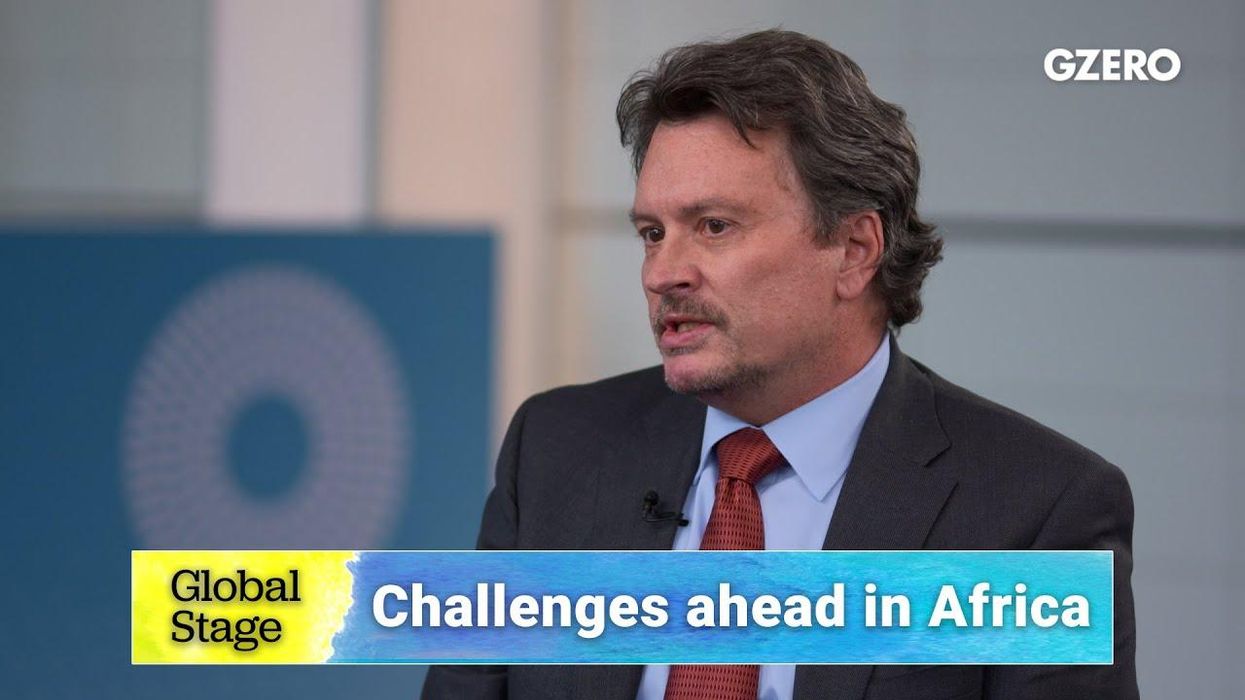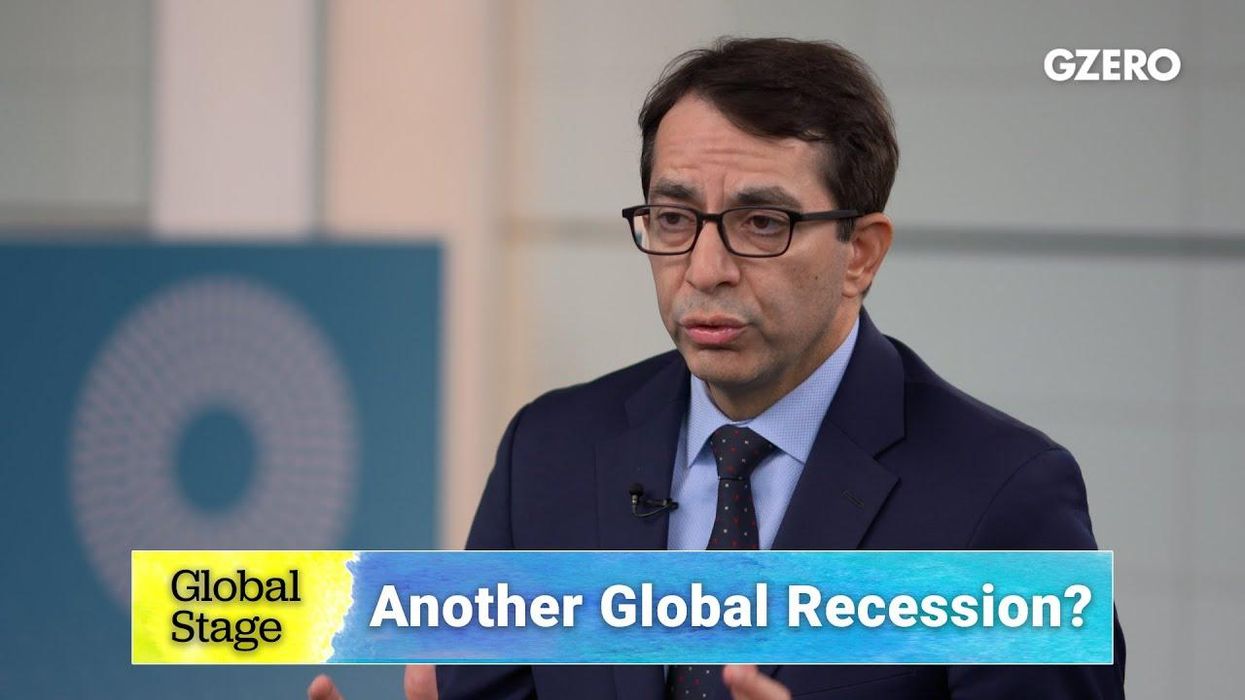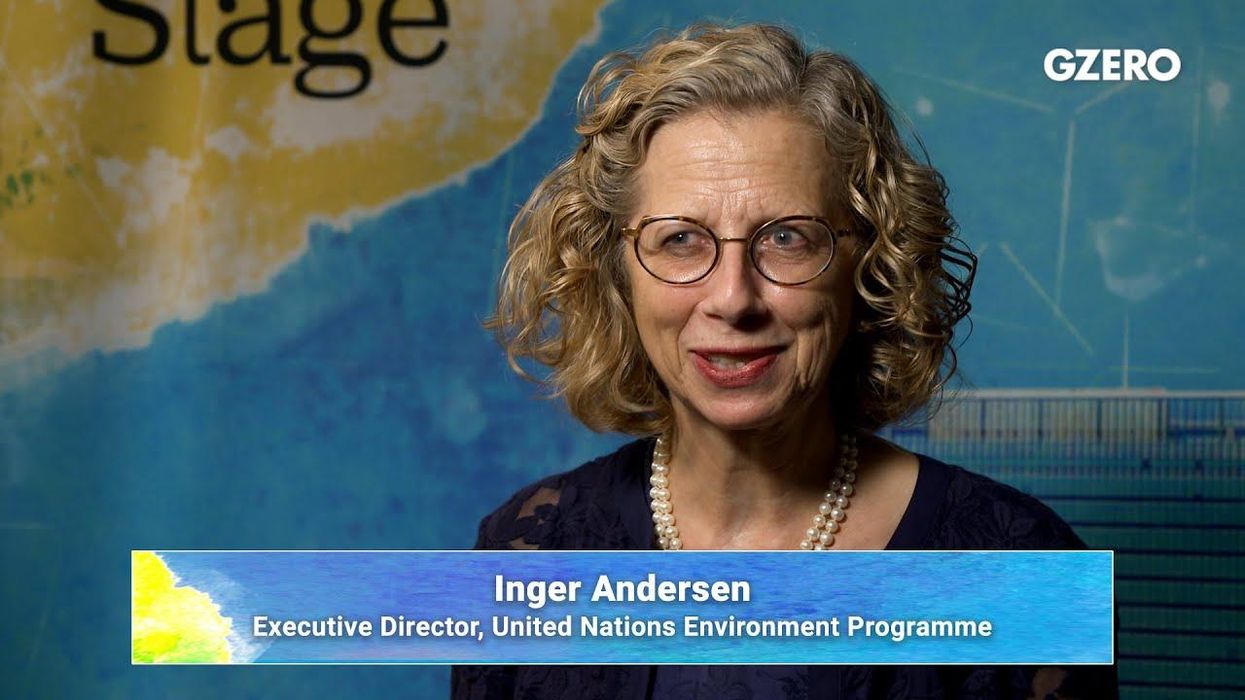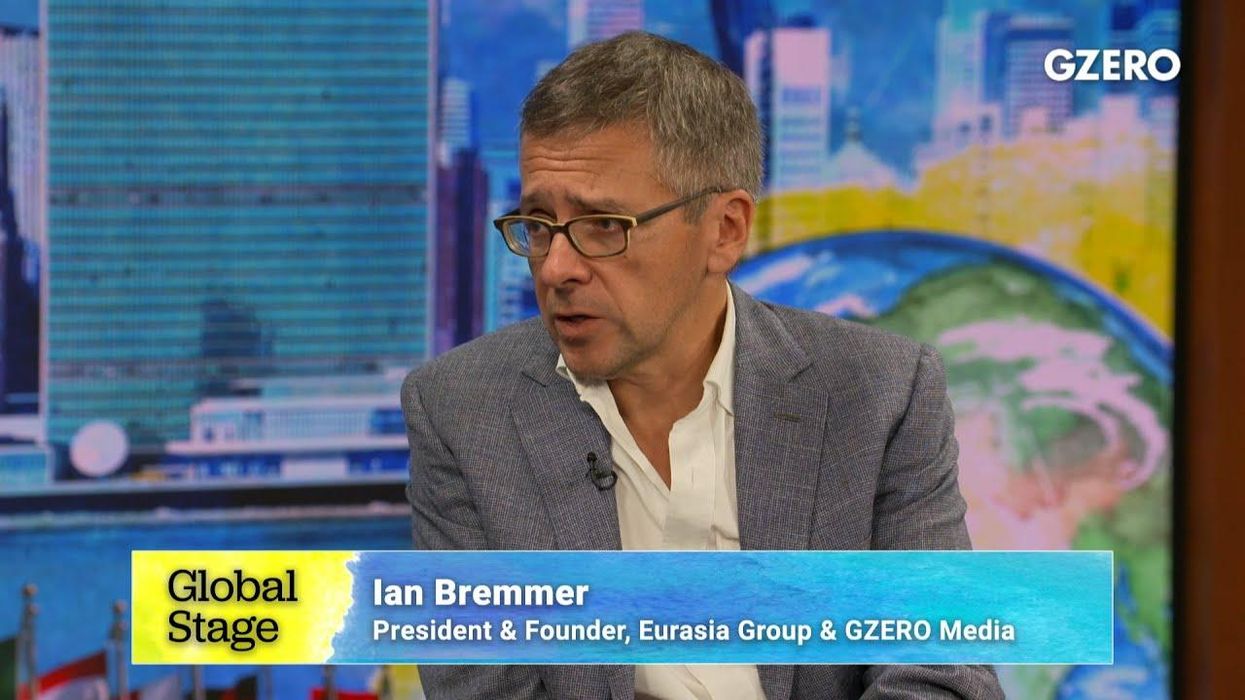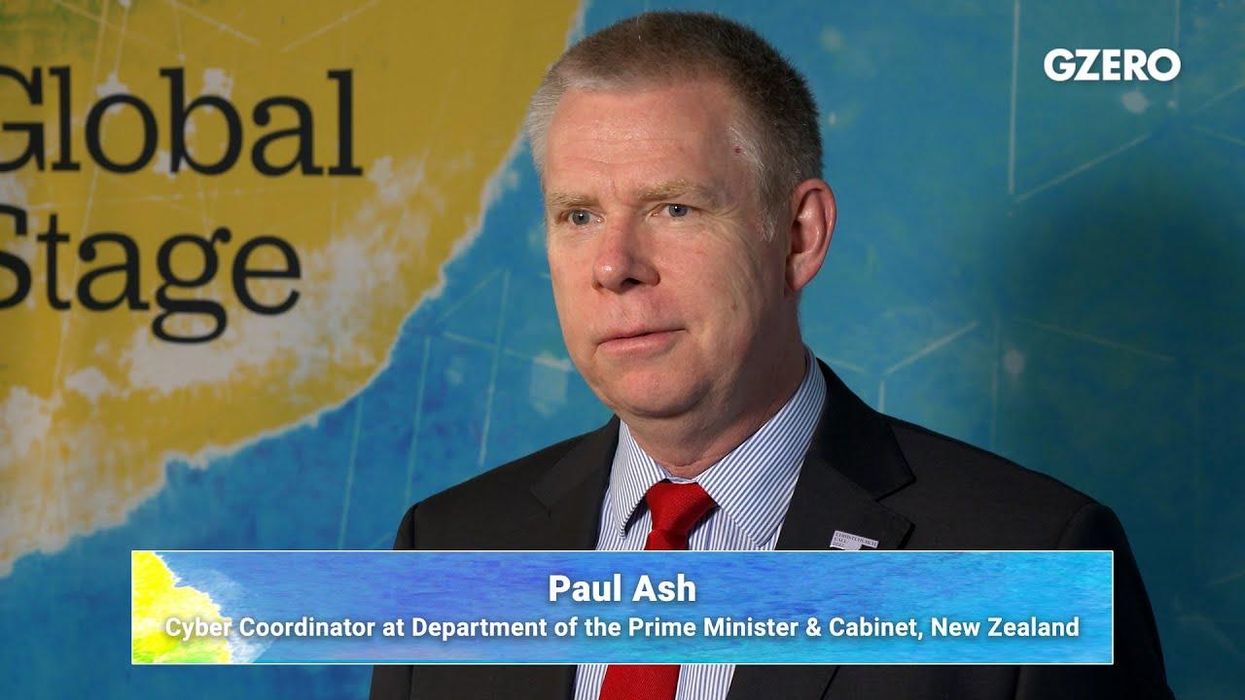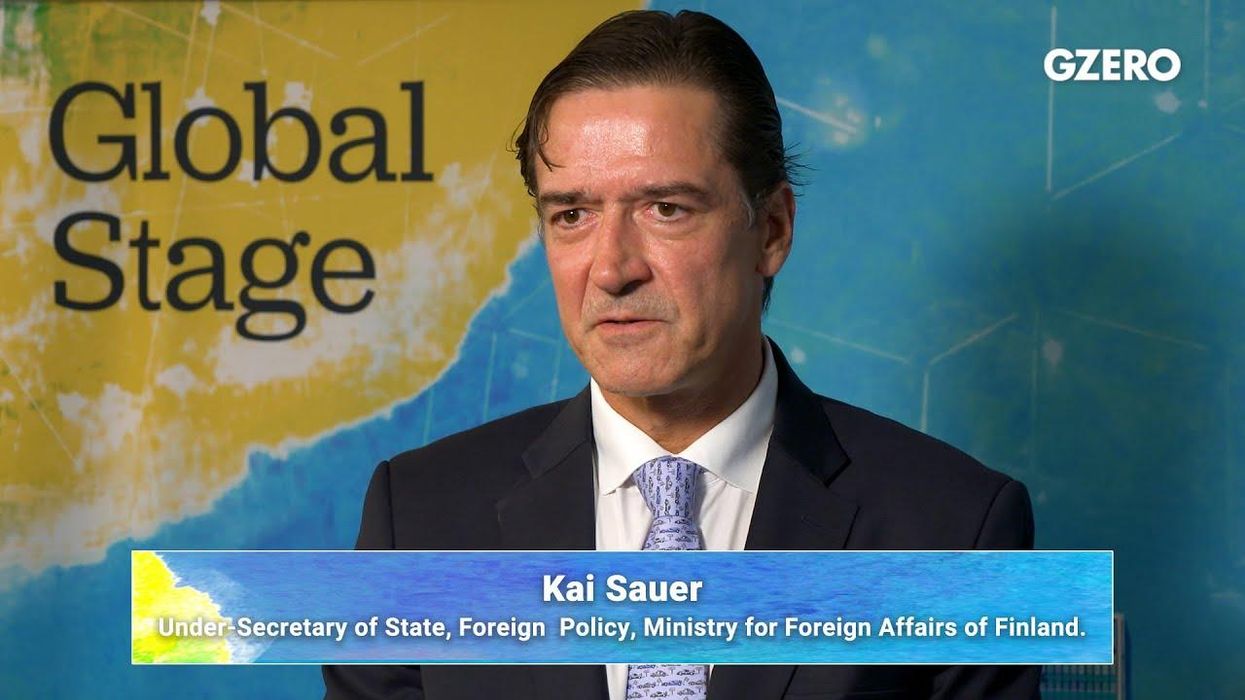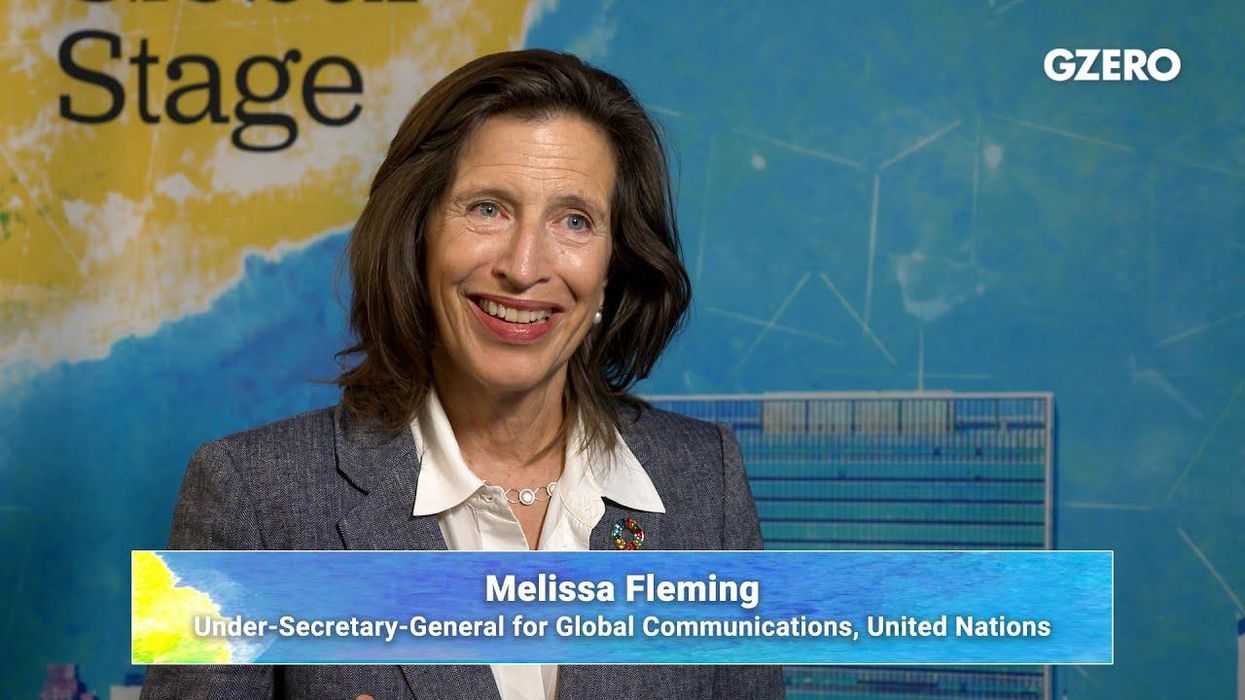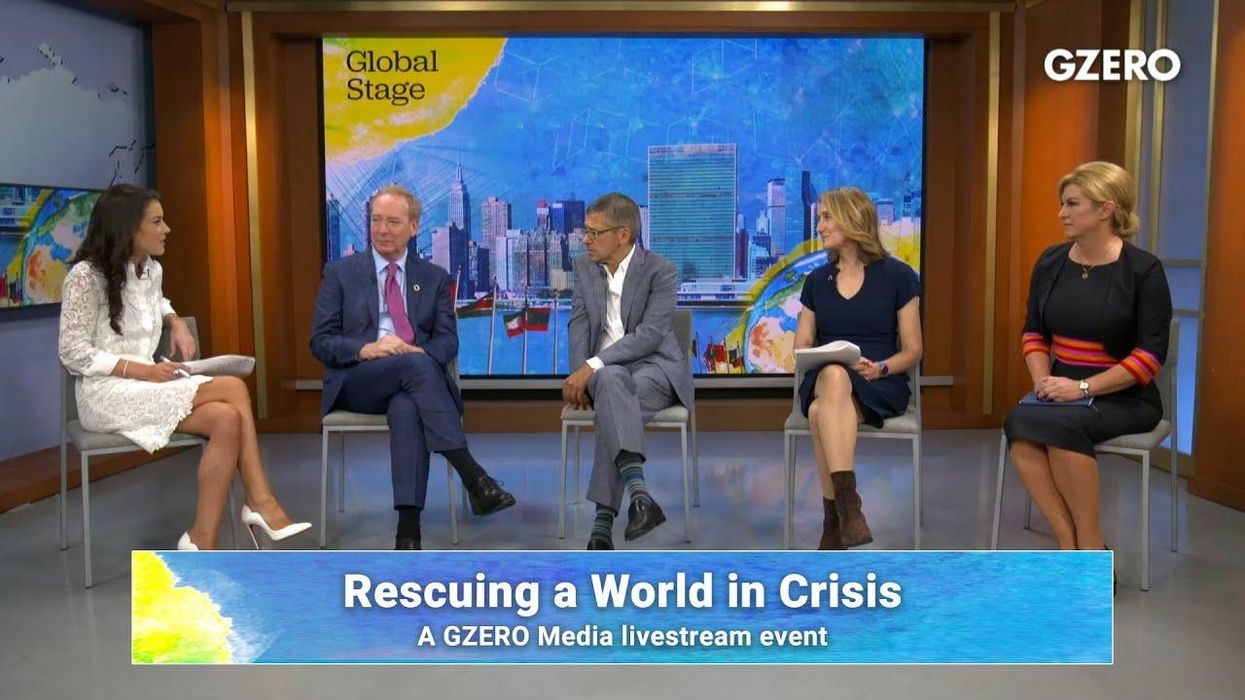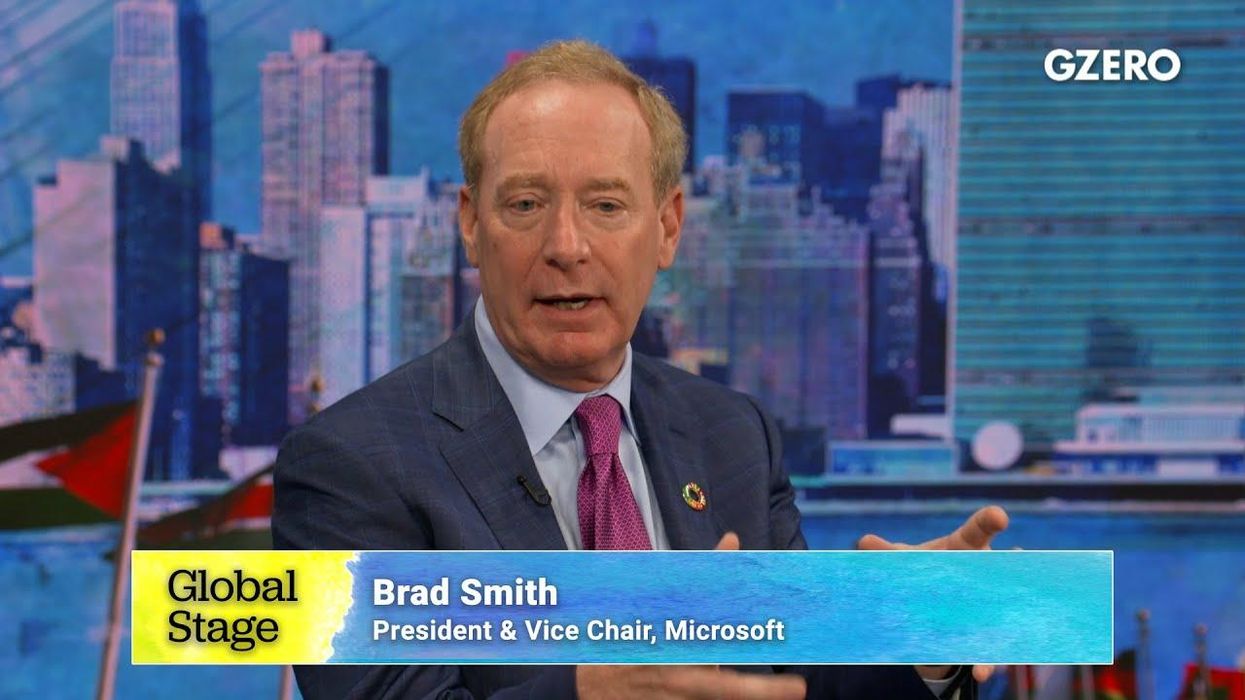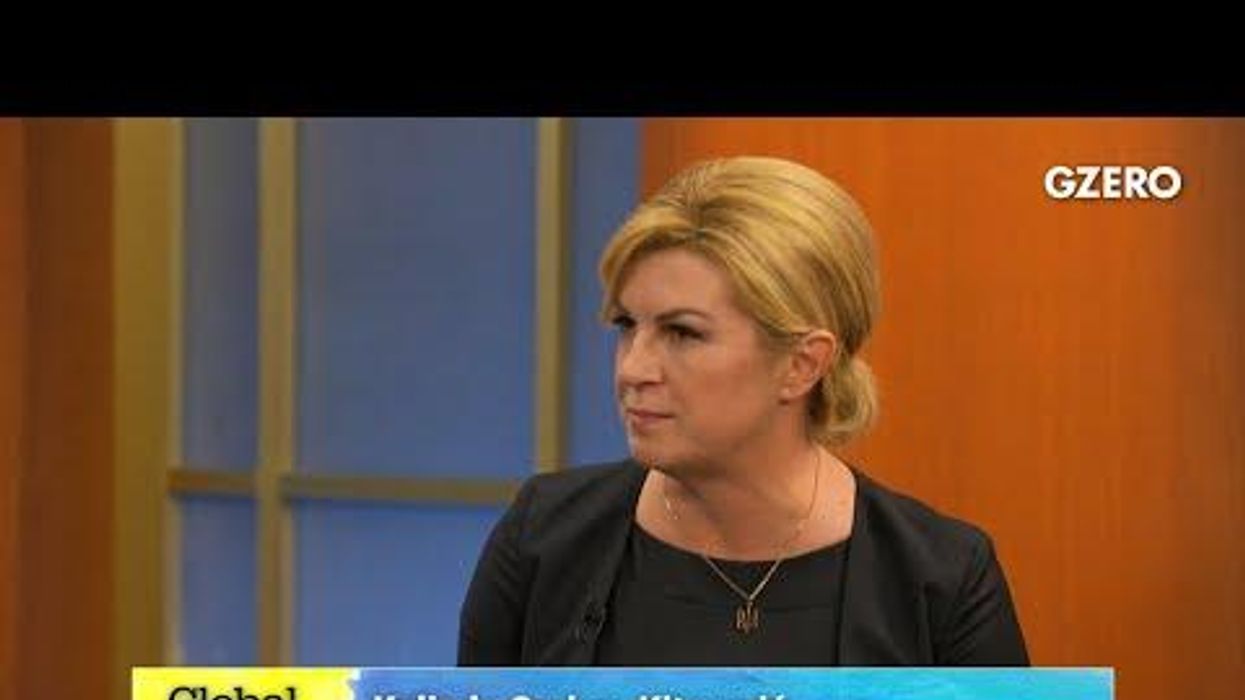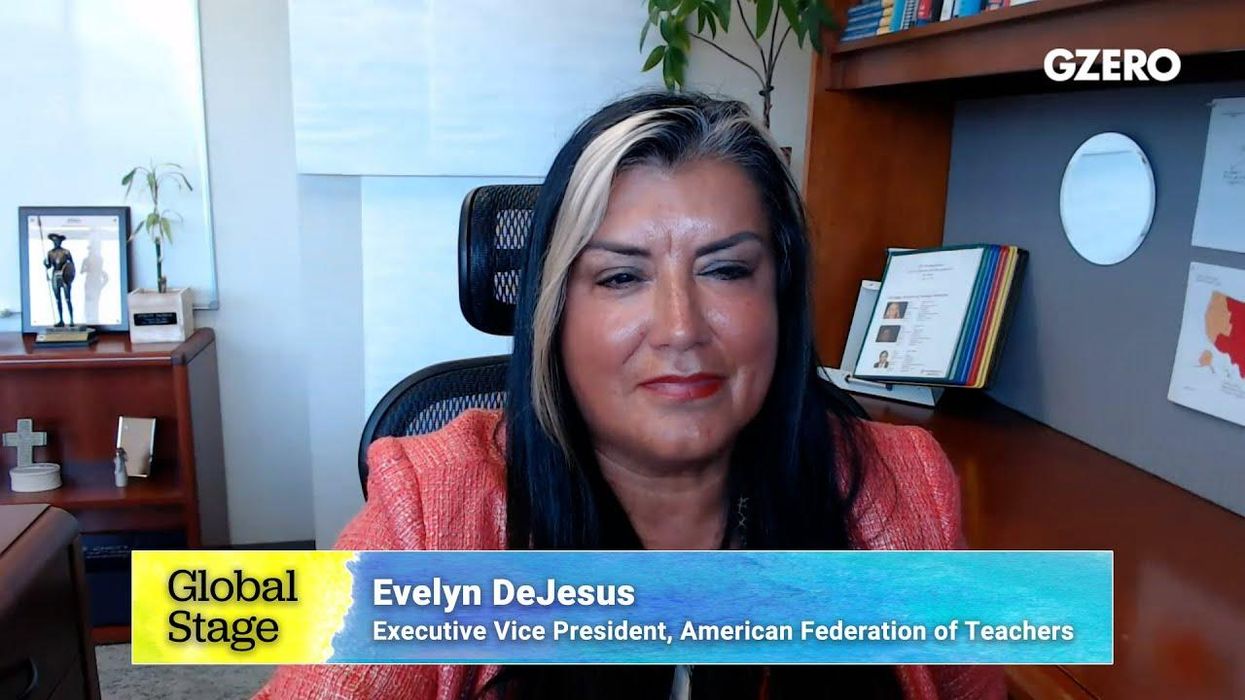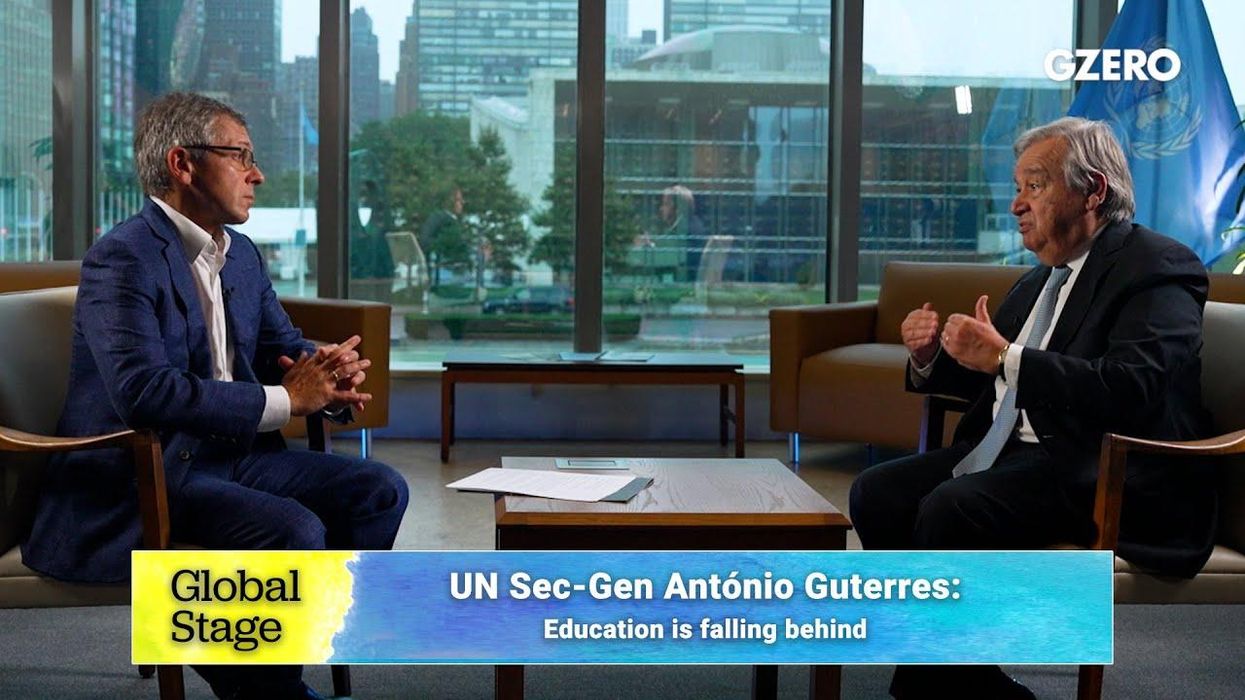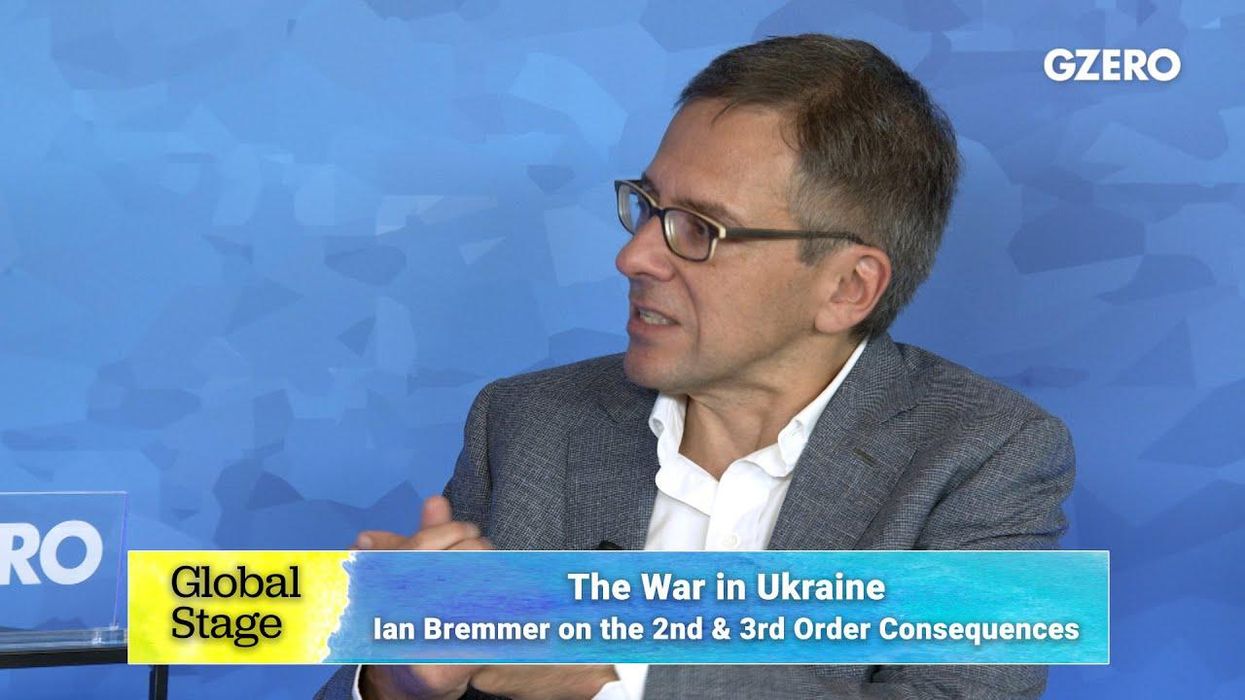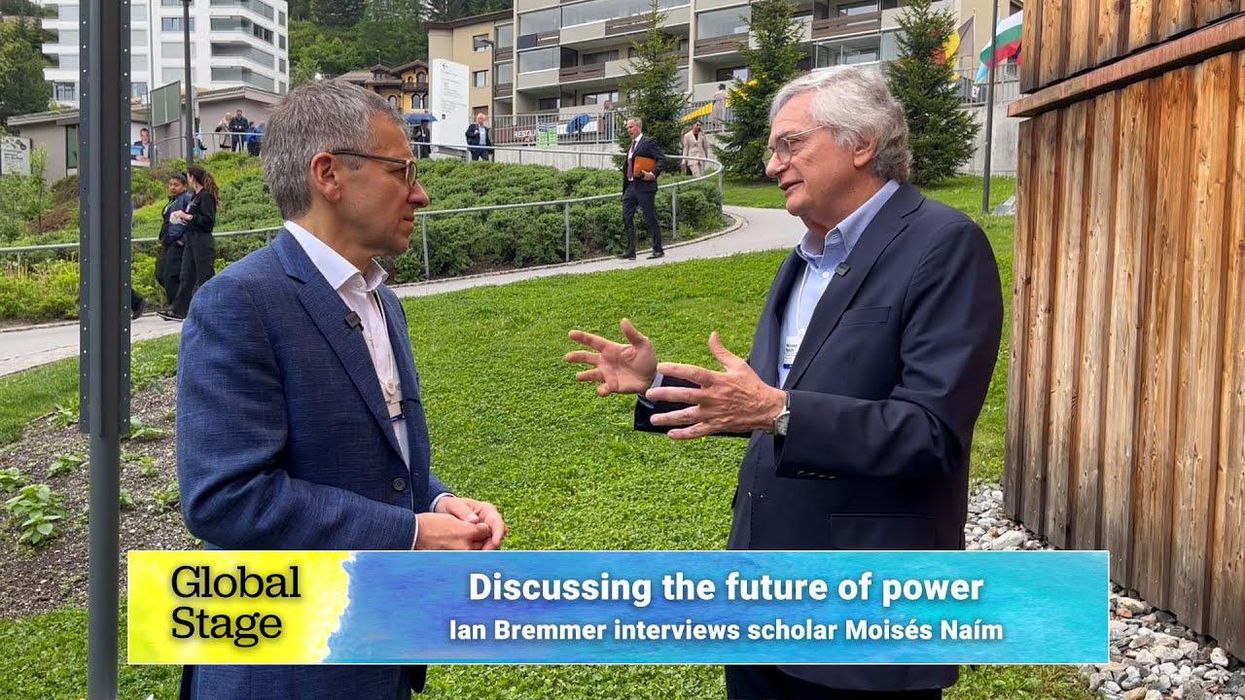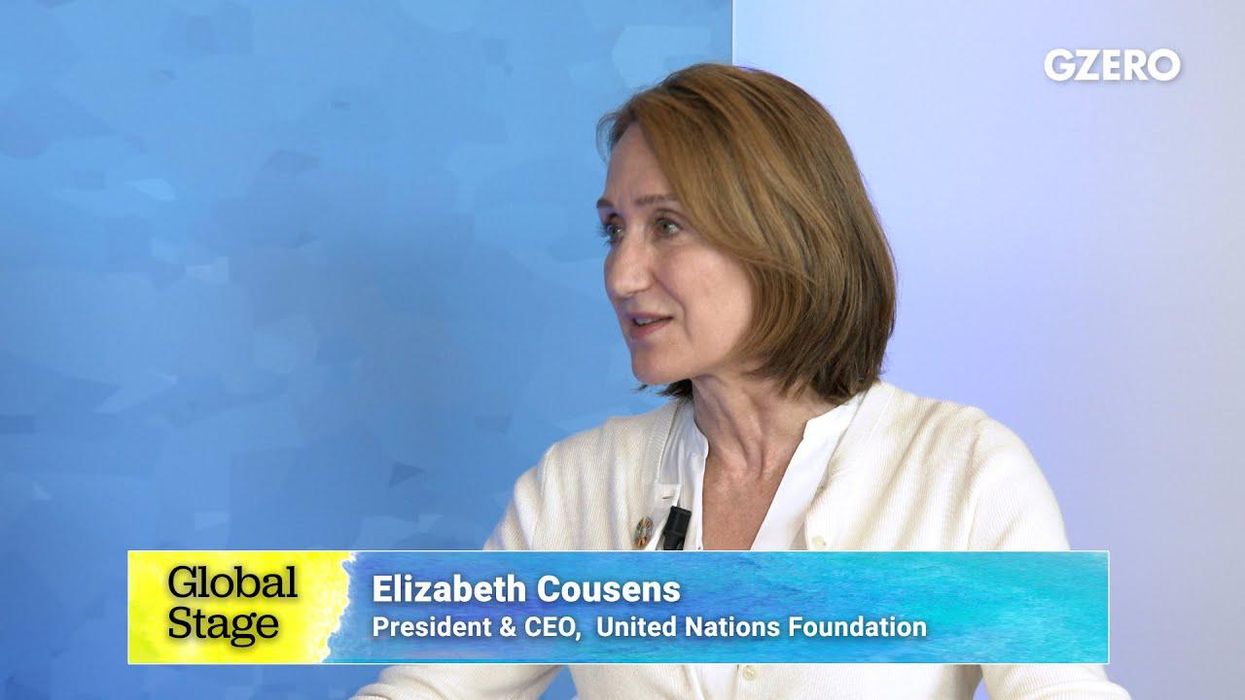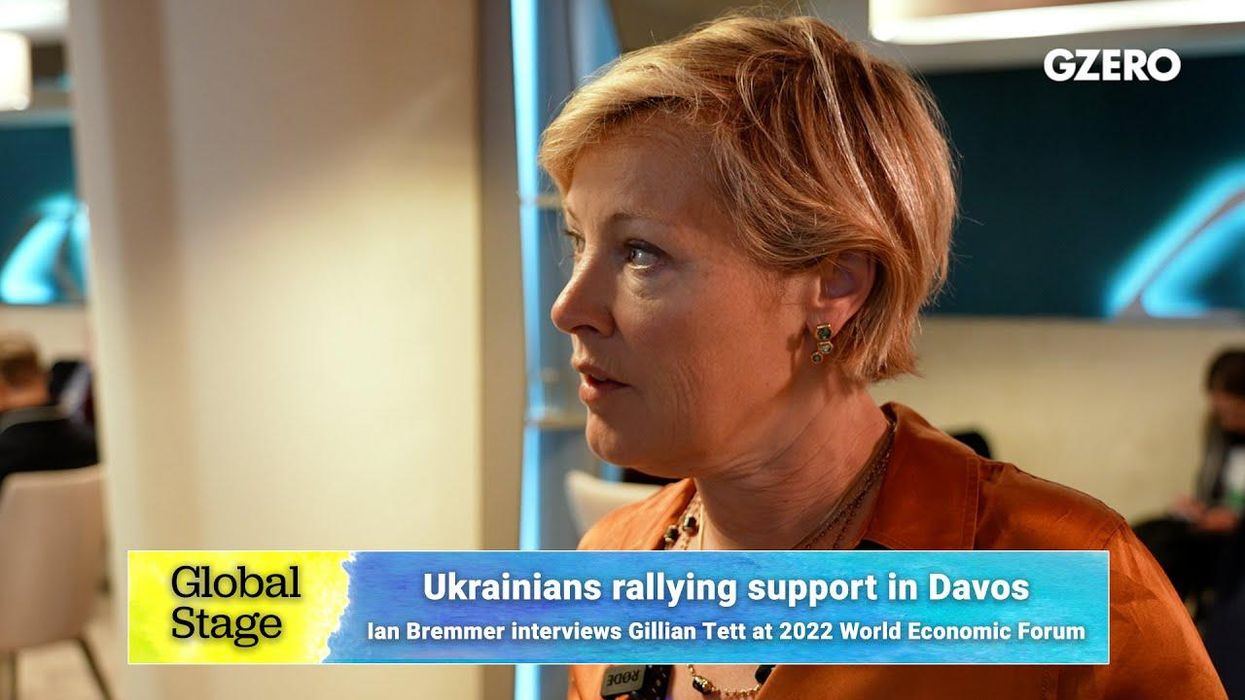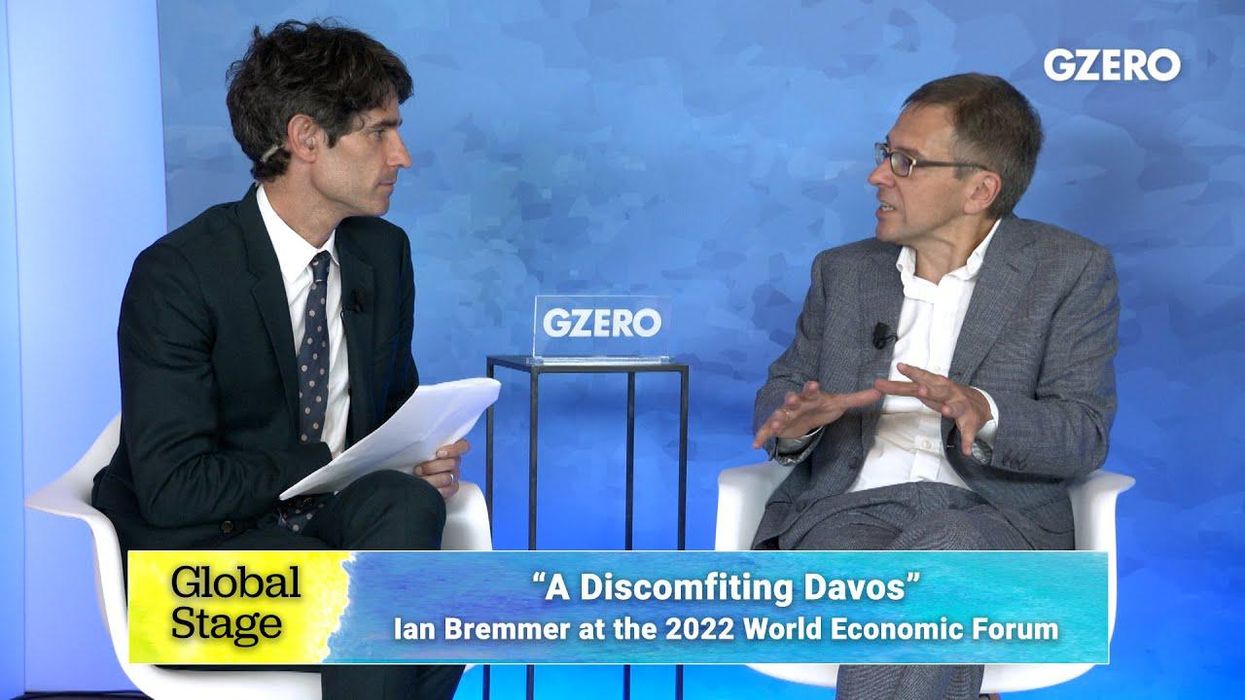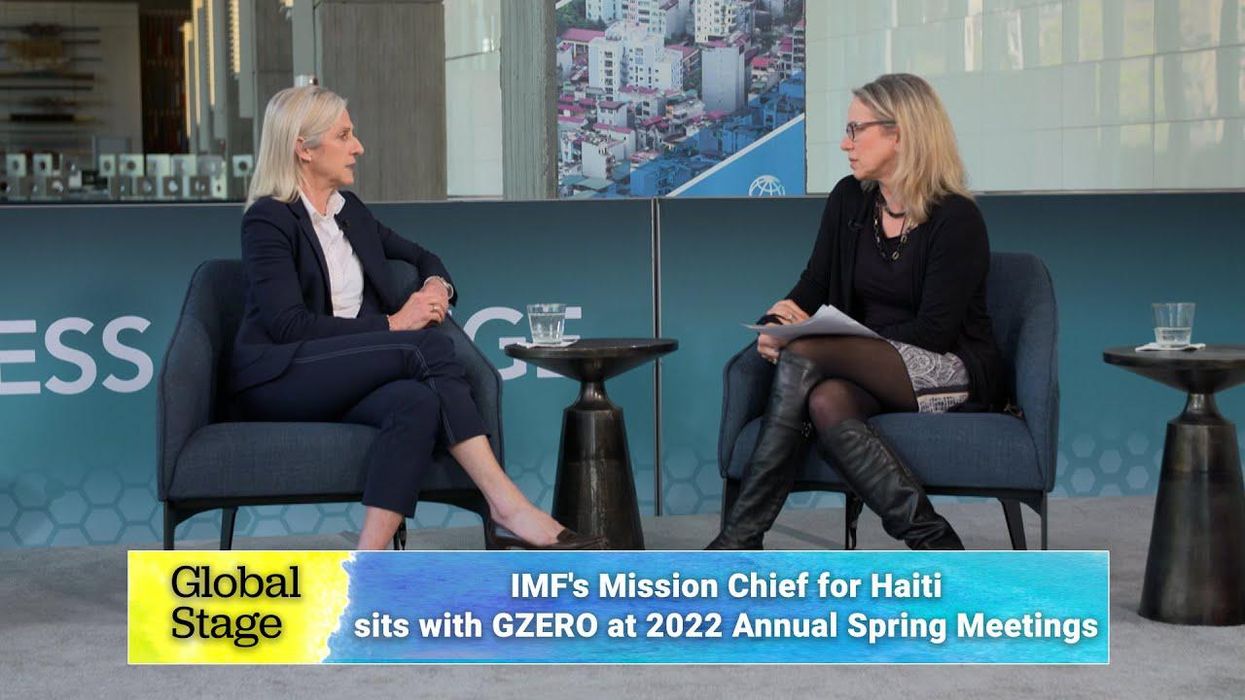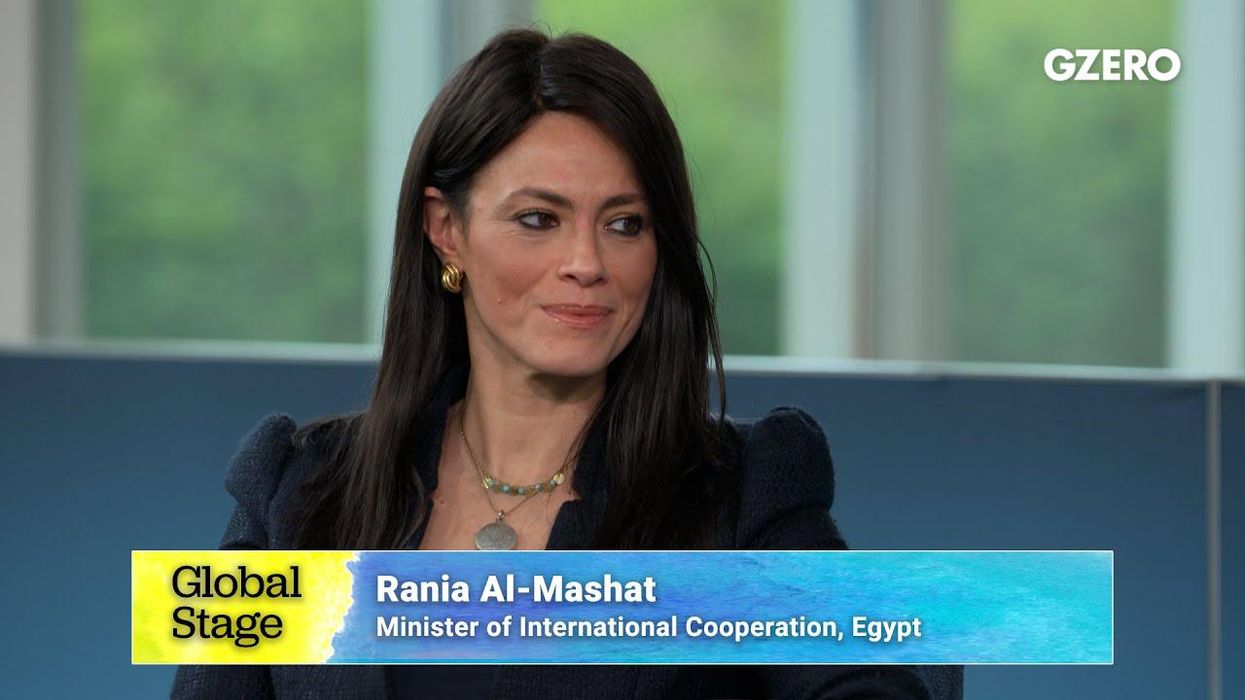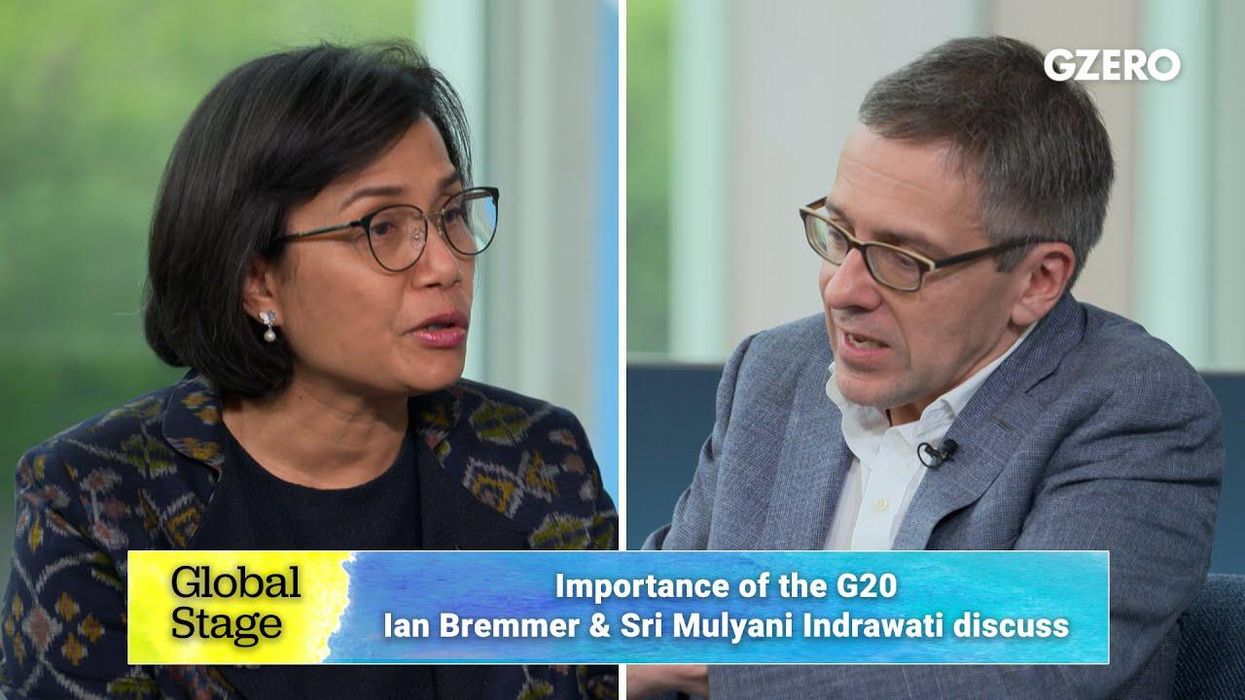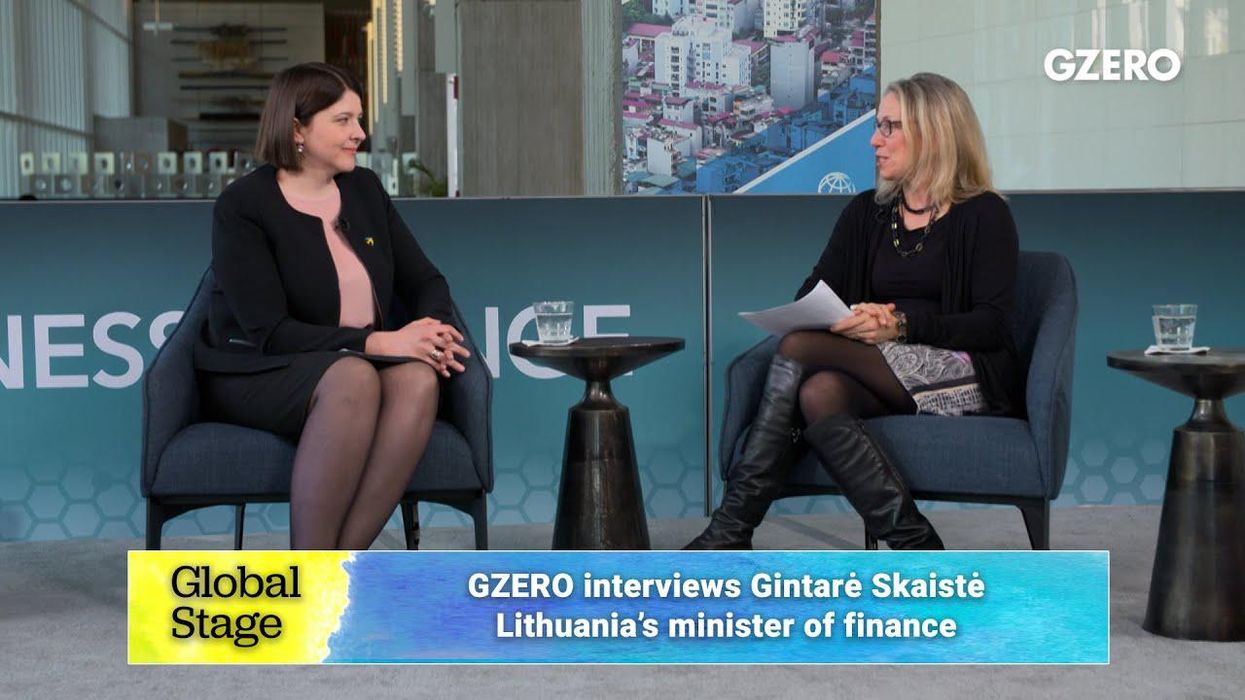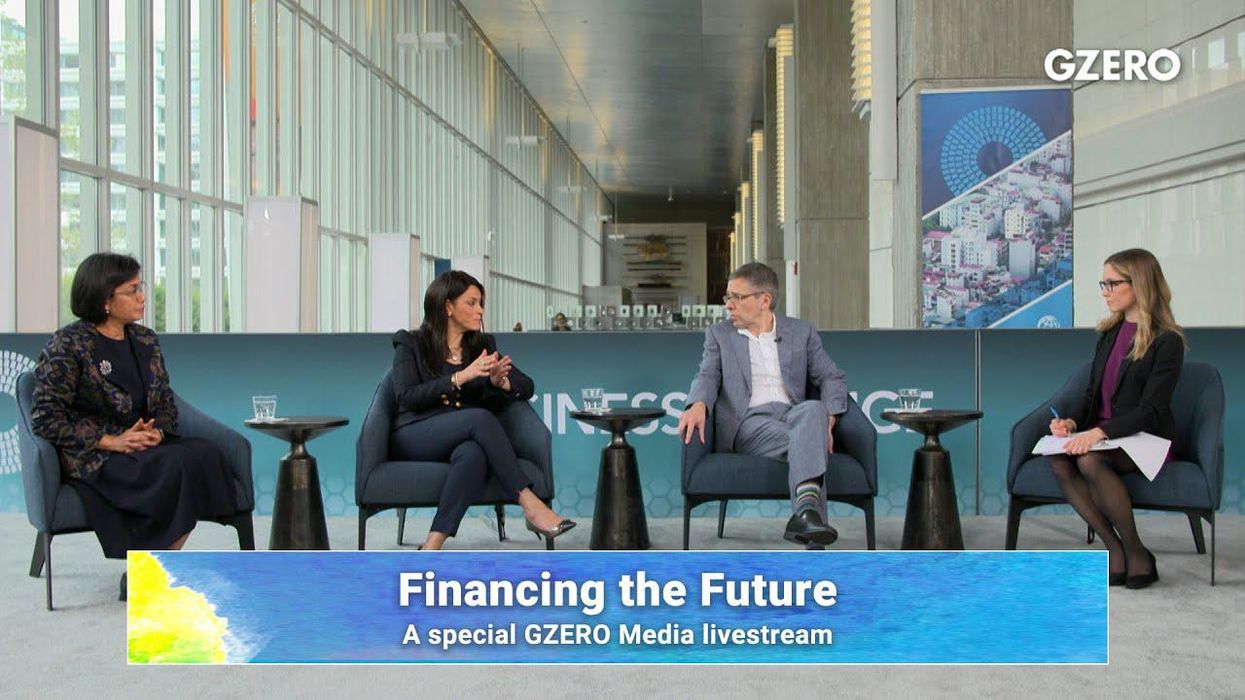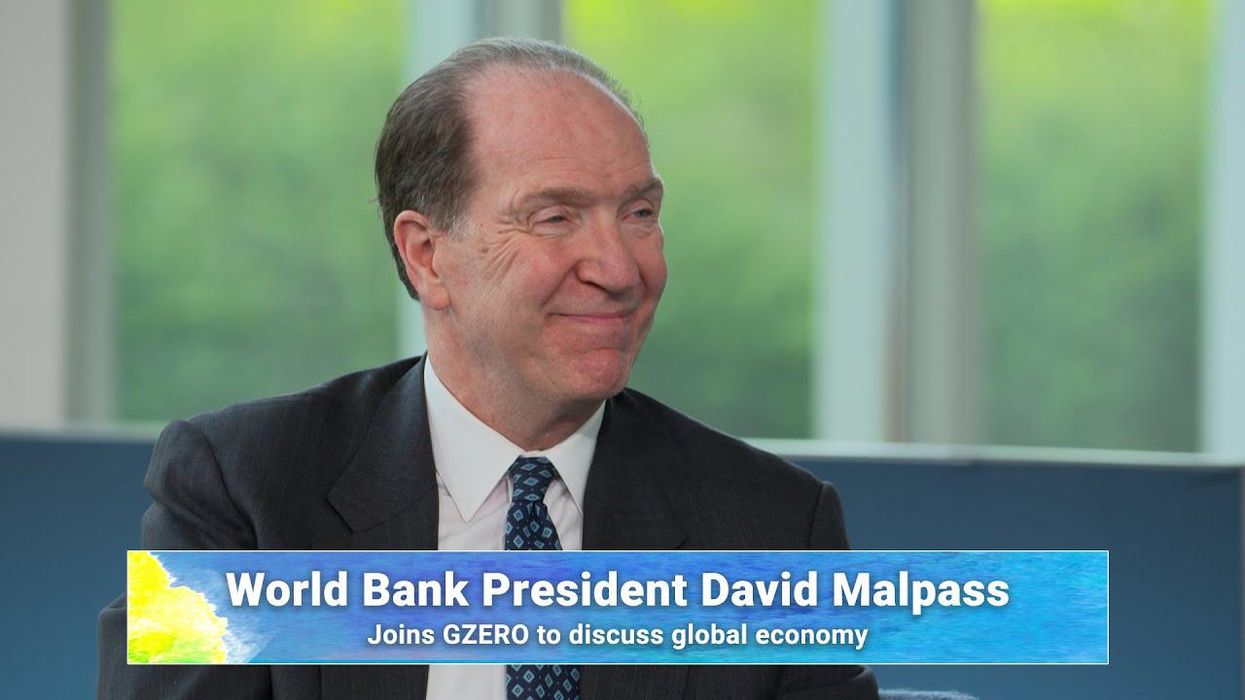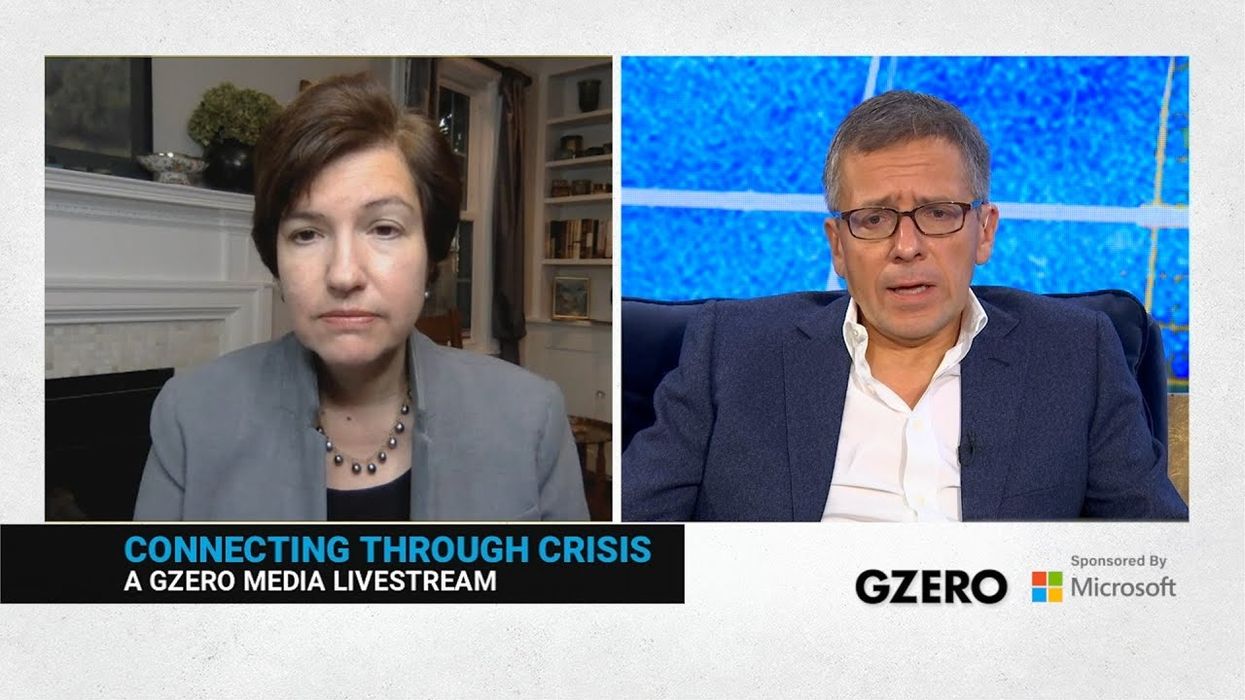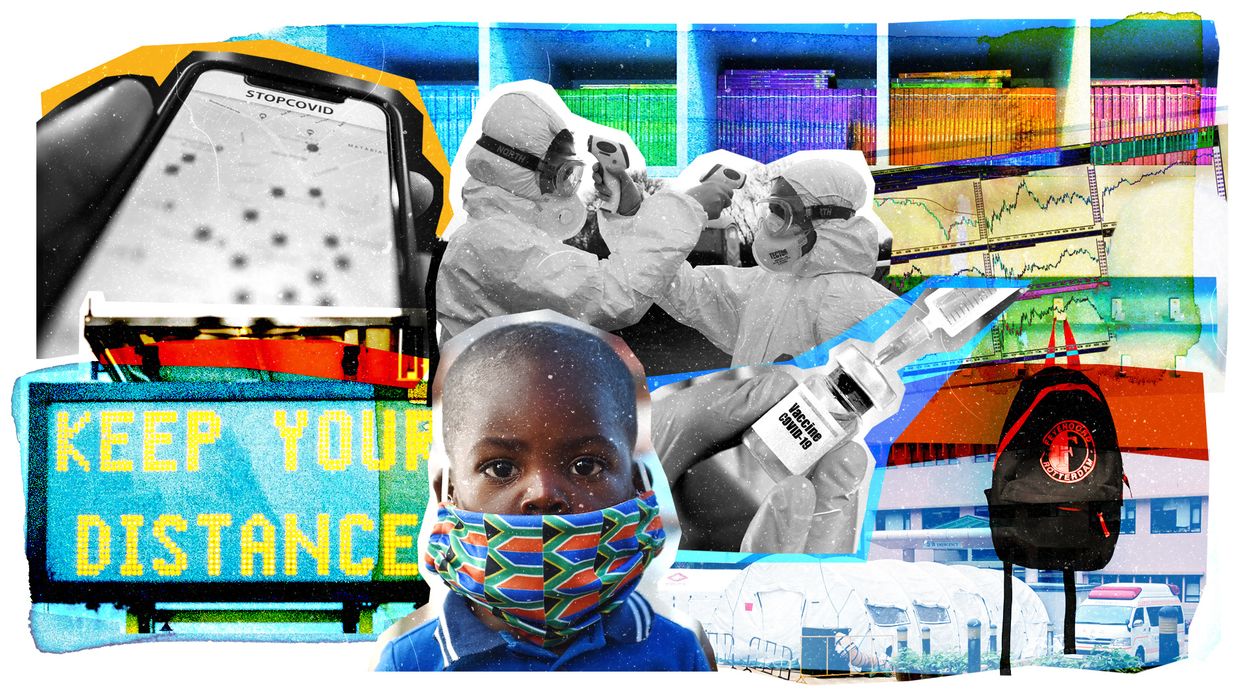VIDEOSGZERO World with Ian BremmerQuick TakePUPPET REGIMEIan ExplainsGZERO ReportsAsk IanGlobal Stage
Site Navigation
Search
Human content,
AI powered search.
Latest Stories
Sign up for GZERO Daily.
Get our latest updates and insights delivered to your inbox.
Global Stage: Live from Davos
WATCH
Crisis Recovery
As the world faces one crisis after another, can we build a more inclusive, green, and resilient global system?
Presented by
For Wolfgang Ischinger, former chair of the Munich Security Conference, the state of transatlantic relations is in good shape right now, although whether we'll have the stamina to stay on course is uncertain. In a Global Stage interview with Ian Bremmer, he seems more worried about American war fatigue than the Europeans — although the EU has Viktor Orbán and it's hard for Germany to cut off Russian gas. One lesson Ischinger has learned from the current crisis is that Europe must have America's back on China, especially with Taiwan. And he calls German Chancellor Olaf Scholz's recent foreign policy U-turns as "going out the window."
Ian Bremmer: With my friend Wolfgang Ischinger here at the World Economic Forum in Davos. Wolfgang, so state of transatlantic relations today, from the Davos perspective, what do you think?
Wolfgang Ischinger: Good shape. Better than at any time in recent memory. If we had had a Davos a year ago, we would've been talking about the debacle of Afghanistan, et cetera. We're in good shape now. NATO is essentially on track, the European Union has surprisingly not fallen apart. I think my only concern is if it is correct to assume that this war in Ukraine will drag on for not weeks but months, are we going to be in good shape three, six, nine months down the road? That's my concern. Are we going to have the stamina to stay on course?
Ian Bremmer: Now, question; to the extent that war fatigue is starting to set in over time, and again, I think most people presume this is not ending any time soon.
Wolfgang Ischinger: Exactly.
Ian Bremmer: Does it come first from the Europeans or from the Americans? And why?
Wolfgang Ischinger: Well, let's talk about America for a moment. You guys have elections coming up, midterm elections, and I'm not so certain that the average American voter is going to like the idea of paying higher gas prices and spending more money on foreign expeditions, etc., etc. So I'm worried a little bit about the American commitment longer term. In Europe, I think at the moment we're in good shape, but of course we have these outliers. We have Viktor Orbán.
Ian Bremmer: Hungary.
Wolfgang Ischinger: We have Hungary, and we have a couple of other partners that have specific interests. Germany has its own problem with gas. I wish I could say in six weeks or in 12 weeks, we're going to be able to cut gas imports from Russia. It's hard to do. It's hard to do, and I feel sorry for those in my own government who have to respond to this urgent question from our Ukrainian partners. When are you going to stop financing the Russian war of aggression by continuing to buy this stuff? But then again, it's not going to help if Germany cuts gas imports now. With the obvious, obvious consequence of a significant recession, then of course the commitment by the German wider public for our Ukrainian determination will surely shrink. And whose interest would we serve with that? So this is really a dilemma.
Ian Bremmer: And the Americans and the Europeans have had diversion perspectives for a while on Russia that are now aligning. They've also had some diversion perspectives on China for a while.
Wolfgang Ischinger: Yes. Yeah.
Ian Bremmer: Are they now aligning?
Wolfgang Ischinger: I think there's one lesson we are learning, we Europeans. We cannot ignore that the US is looking at a huge problem, potential problem with China, with the Taiwan issue, etc. And we cannot possibly leave the United States alone in that. In other words, we need to understand that even though this is many thousands of miles away, it is in our interest to get involved. Maybe not militarily, we don't have the capacities militarily, but certainly politically, and we need much closer coordination between Washington, and Brussels, and Berlin and Paris on China.
Ian Bremmer: And Olaf Scholz so far, when you saw that initial speech he gave, the turning point speech he gave, did it reflect for you a new strategic vision for Germany? Is this a new generation for Germany in politics or is it more modest than that?
Wolfgang Ischinger: No. It was a major decision. Look, essential elements of established German foreign policy went up the chimney.
Ian Bremmer: We'd say out the window.
Wolfgang Ischinger: Out the window.
Ian Bremmer: But that sounds more definitive, if it's up the chimney.
Wolfgang Ischinger: Out the window. The idea which about which we had been preaching for many years, the future partnership with Russia; out the window, no longer possible. The idea of a security order for all of Europe, with Russia included; out the window. In other words for no country has this Russian attack against Ukraine produced more sharp cuts and the need for total revision of our foreign policy. The problem for Olaf Scholz is not that he gave the wrong speech. The problem for him is that it's not so clear that all of his followers in his own party agree with his speech-
Ian Bremmer: Social democrats.
Wolfgang Ischinger: And with the consequences of spending a hundred billion extra on defense, and on meeting the 2% defense goal going forward, etc. So, he has to fight this internal political fight, not against the opposition, which supports him, but against his own party.
Ian Bremmer: The Americans have been saying for a long time, how come the Europeans aren't sacrificing the Germans? The Europeans are sacrificing more this time around. There's no question.
Wolfgang Ischinger: Yes. Absolutely.
Keep reading...Show less
More from Crisis Recovery
Are markets becoming immune to disruptive geopolitics?
April 20, 2024
At the Paris Peace Forum, grassroots activists highlight urgent issues
November 10, 2023
Use AI and data to predict and prevent crises - Melinda Bohannon
October 12, 2023
"Access is a fundamental right" - Digital activist Vilas Dhar
October 11, 2023
The Global South is angry and mistrustful - Ian Bremmer
October 10, 2023
An early warning system from the UN to avert global disasters
October 04, 2023
AI plus existing technology: A recipe for tackling global crisis
September 30, 2023
The state of multilateralism: Shaky, fragile & stretched to capacity
September 27, 2023
Climate crisis can't be hijacked by global competitions: Justin Vaisse
September 23, 2023
How can the world build back better public health after COVID?
September 23, 2023
“Health is a human right”: How the world can make up progress lost to COVID
September 21, 2023
Eddie Ndopu: "People with disabilities need to be in leadership"
September 21, 2023
The world "is more coupled than we think"
April 13, 2023
We should not underestimate Putin, says NATO’s Benedetta Berti
February 19, 2023
Mongolia: the democracy between Russia and China
February 18, 2023
Ukraine dominates the dialogue in Munich
February 18, 2023
Is there a path ahead for peace in Ukraine?
February 17, 2023
Putin's tragic genius: war crimes & isolated Russia
January 24, 2023
Fighting crimes against humanity in a world of crisis
January 24, 2023
How to support youth seeking peace
January 02, 2023
Ian Bremmer: A political power vacuum is bad news for the world
December 28, 2022
2022 has been rough. Will 2023 be any better?
December 16, 2022
The perils of depending on food imports: UN Foundation chief
November 24, 2022
Focus on Africa: hunger, energy, climate - and the path to growth
October 14, 2022
Is the world on the brink of another global recession?
October 13, 2022
UN Environment Chief: “The truth is we are failing”
October 02, 2022
Ian Bremmer: Russia is a rogue state
September 30, 2022
Future-proofing the internet from radicalization & extremist content
September 30, 2022
Finland “investing in security and stability” with NATO push
September 27, 2022
Why is Russia on the UN Security Council?
September 23, 2022
Who can solve the world's "emergency of global proportions"?
September 22, 2022
Microsoft president Brad Smith has a plan to meet the UN's goals
September 21, 2022
Post-COVID burnout for students is real, says US teachers union exec
September 16, 2022
How to get students back on track after the Great Education Disruption
September 16, 2022
Haiti stuck in a "vicious circle," says IMF economist
April 27, 2022
Egypt wants COP27 to be all about implementation
April 23, 2022
What happens if Russia attends the 2022 G20 Bali summit?
April 22, 2022
Unpacking Lithuania's energy independence strategy
April 22, 2022
Is global economic inequality getting worse?
April 22, 2022
Americans “are going to get angrier”: Ian Bremmer on US pandemic response
September 25, 2020
Crisis response and recovery: Reimagining while rebuilding
September 13, 2020
GZERO Series
GZERO Daily: our free newsletter about global politics
Keep up with what’s going on around the world - and why it matters.
